33 Essential Albums You Probably Missed So Far in 2019
Credit to Author: Noisey Staff| Date: Thu, 13 Jun 2019 15:31:05 +0000
There is an impossible amount of music released each year. This has always been true, but in the streaming era, it’s harder to keep up with than ever. And we get it, you’re busy. How are you going to listen to all the spiritual drone records and abstract noise raps that fill Bandcamp every single day? Lucky for you, we’re always listening, so we dug up just a few of the best albums that didn’t get as much attention as they should have so far this year.
Ana Roxanne, ~~~
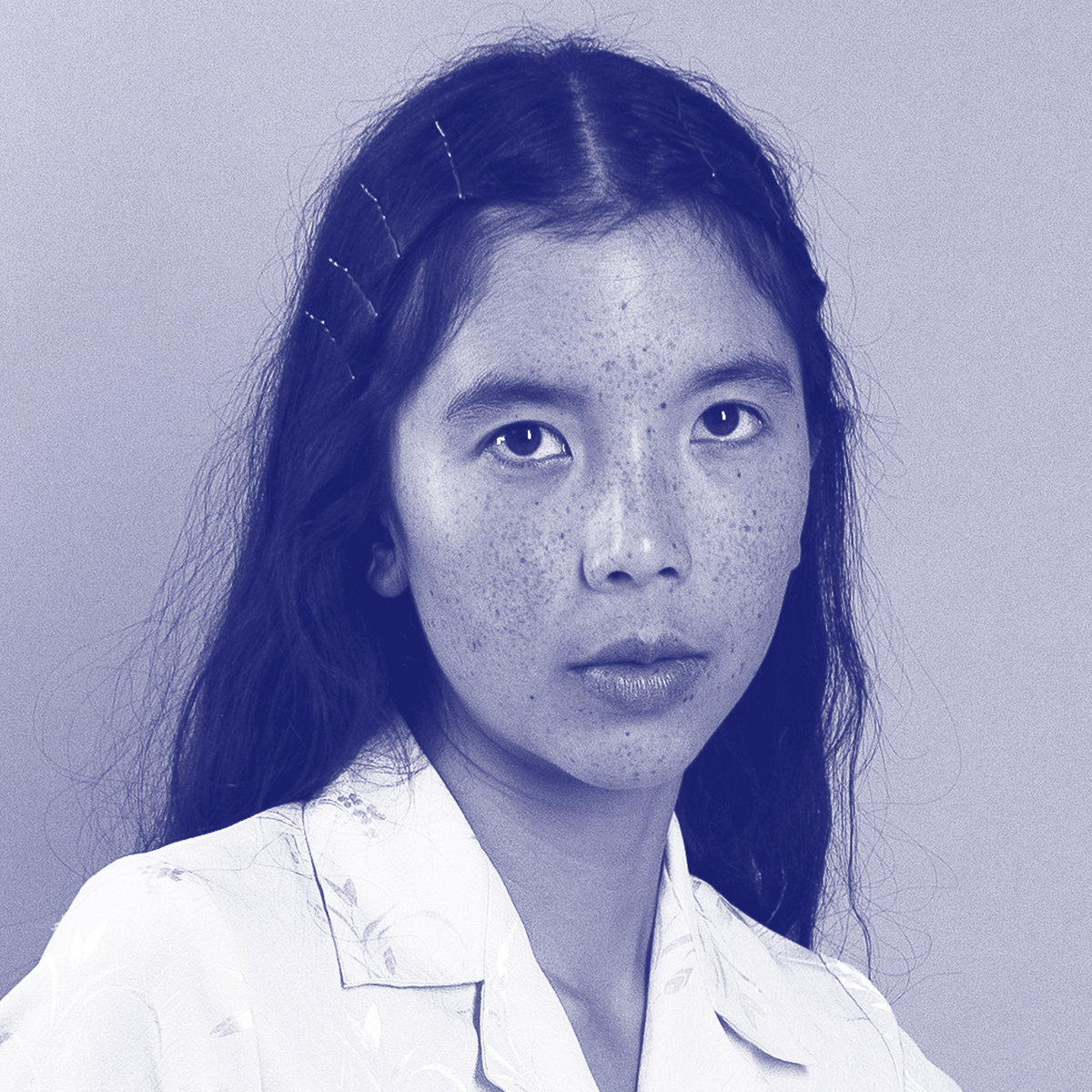
In the age of the infinite scroll, any occasion to slow down merits praise, but the Bay Area born composer Ana Roxanne does so with purpose. Her mission statement comes in the form of a track called, simply “Slowness,” a breathy synth piece on which a voice intones slowly: “In existential mathematics […] the degree of speed is directly proportional to the intensity of forgetting.” The implication is intuitive. The more you’re willing to pause and take in your surroundings, the richer your experiences can be. The details are more vibrant, the colours more full.
This is true of Roxanne’s music, in which crawling drones and plodding synth sequences lap and purl in unhurried ways, allowing space for reflection, stillness, and solitude. There is something trance-like, and mantra-esque that makes these short pieces feel like devotional music. Roxanne, who was raised in the Catholic church, clearly has these things on her mind. She makes the case with this tape that it’s actually slowness that is closest to godliness. —Colin Joyce | LISTEN
Angel Bat Dawid, The Oracle
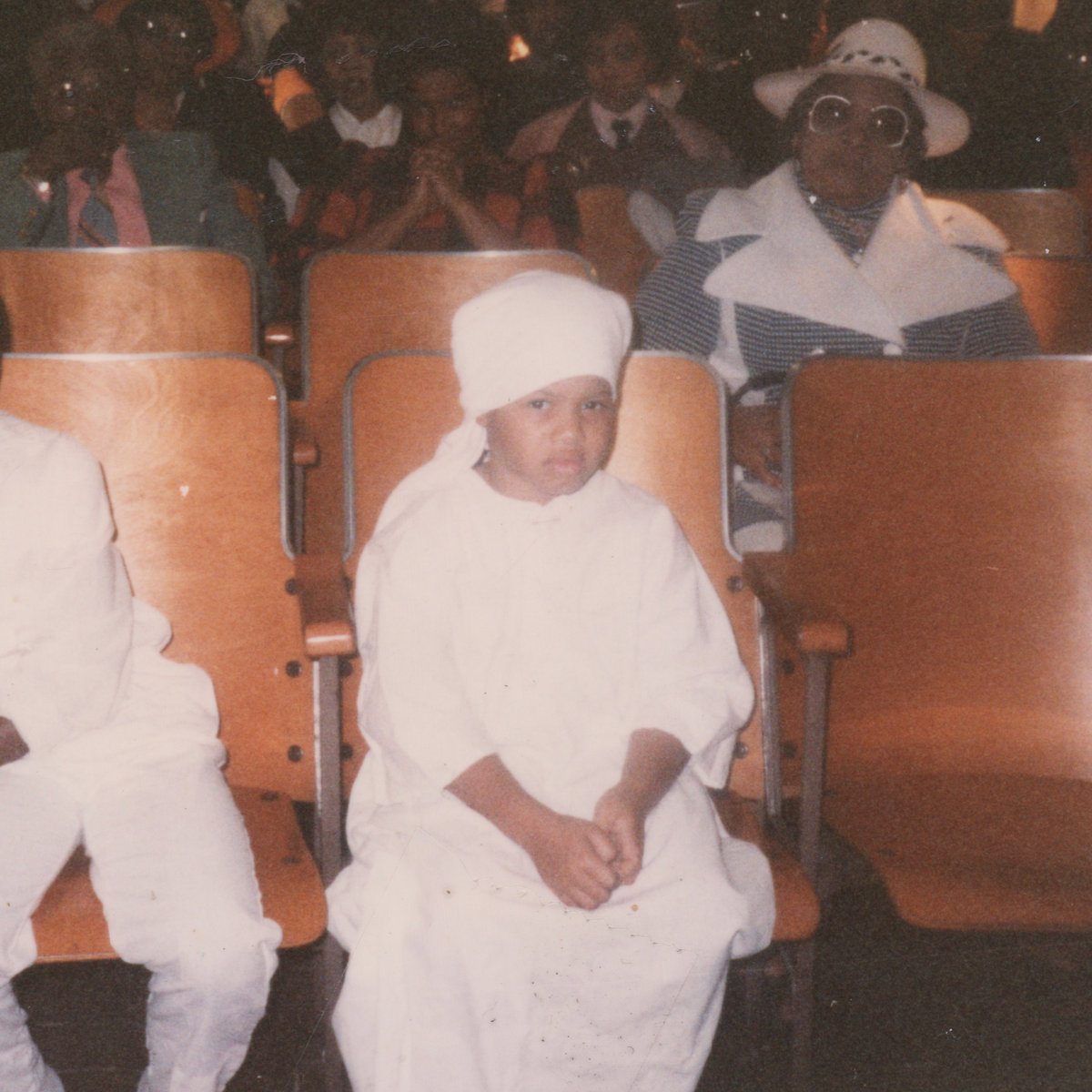
The Chicago-based composer Angel Bat Dawid places her mystic take on jazz in a long tradition of Black artists who’ve used music to overcome trauma. “It all started because people snuck away from the establishment and the oppression to soothe their souls through sound—that’s the music I play,” she told Bandcamp earlier this year.
The Oracle, her debut for the Chicago avant-gardists International Anthem, is a pure expression in that lineage. The album was recorded entirely to cell phones, and Bat Dawid played every instrument, layering mantra-like vocals over these elliptical, allusive arrangements that are both slow-moving and deceptively complex. It’s the rare record that can function both as music for mediation, and something even deeper, revealing truths beyond what we can see. Bat Dawid has said that when she writes lyrics she feels like they come “from somewhere else.” This makes sense; the music contained in The Oracle feels like it comes from a higher place. —Colin Joyce | LISTEN
Anu Sun, Sanguine Regum
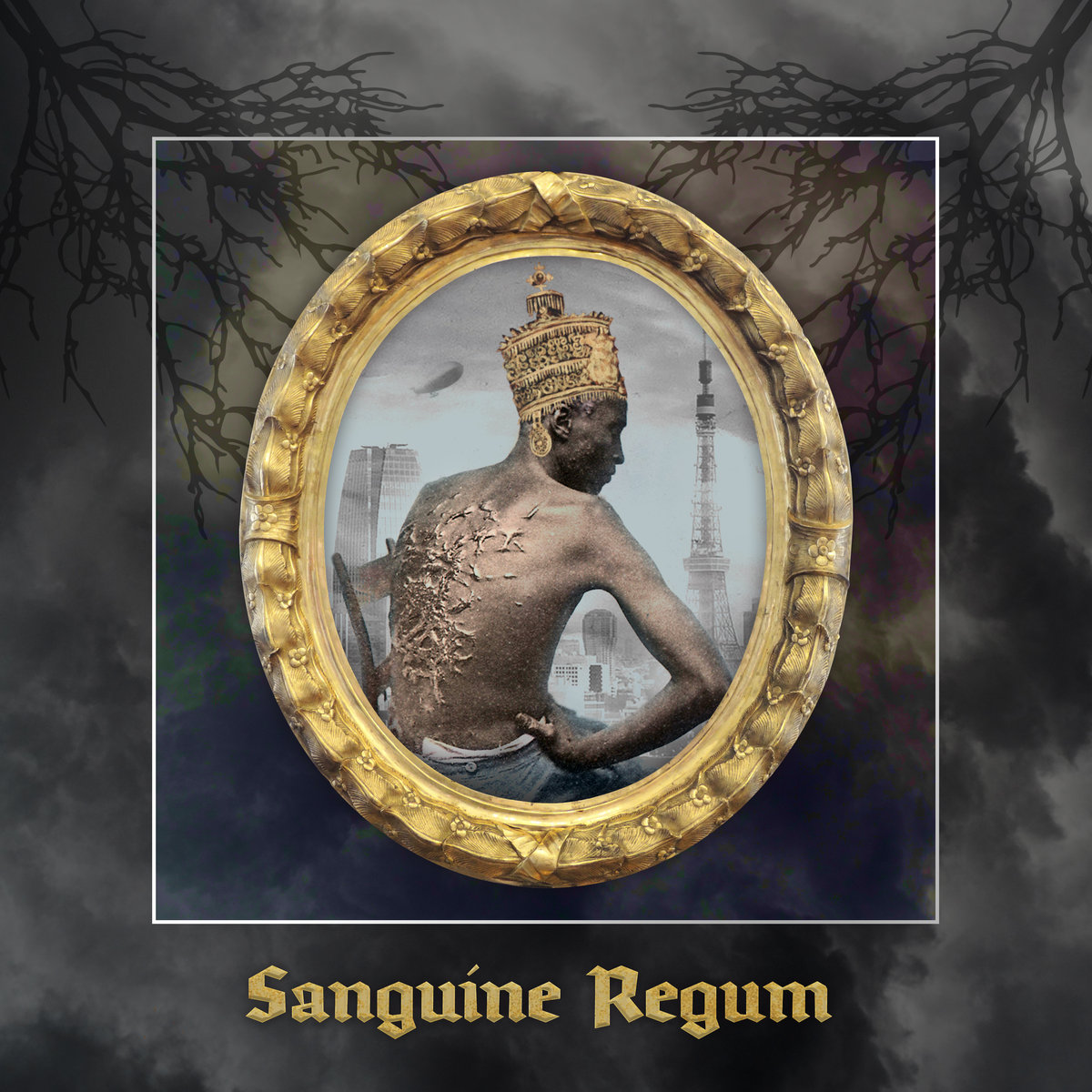
If we happened to live in a world where liner notes still existed and people paid them any mind, the name Anu Sun might cop the respect it truly deserves. This Harlem-based affiliate of Robert Glasper had his hand in a number of projects helmed by the heralded jazz pianist including Black Radio 2 and the Miles Davis reimagining Miles Ahead. On this project, Anu comes through with an uptown genre clash in line with his vital series of The Shed live jam sessions at Ginny’s Supper Club on Lenox Avenue. Politically charged cuts like “KAEPtain AmeriKKKa” and “SONset Reprise” delve into the issues and tragedies of American racism, while guests like Farrah Boulé, Bria Monét, and the aforementioned Glasper bring their formidable talents to Anu’s robust contemporary productions. —Gary Suarez | LISTEN
Bathe, I’ll Miss You
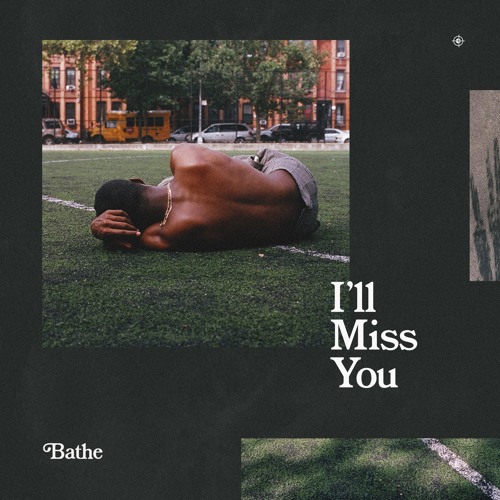
The New York-based duo Bathe never want summer to end. Their debut EP, I’ll Miss You, finds producer Corey Smith-West and singer Devin Hobdy ruminating on the warmth of summer and the sticky feelings that melt like dollar popsicles. Traces of funk drip on “Dealer,” with a bubbling bassline that examines the sweltering heat of a romance in the warmer months. Like school children with the promise of a new year ahead of them, the duo doesn’t want to say goodbye to their lover. “I wouldn’t stay for anyone, but you,” Hobdy sings. “Kimmi,” the following song, is a reminder that even vacation flings cool down. The pair muse on the feeling being ghosted, listing the possibilities why they’ve been stood up: “Tell me you slept through the text and the calls / I wouldn’t blame you at all.” —Kristin Corry | LISTEN
Control Top, Covert Contracts
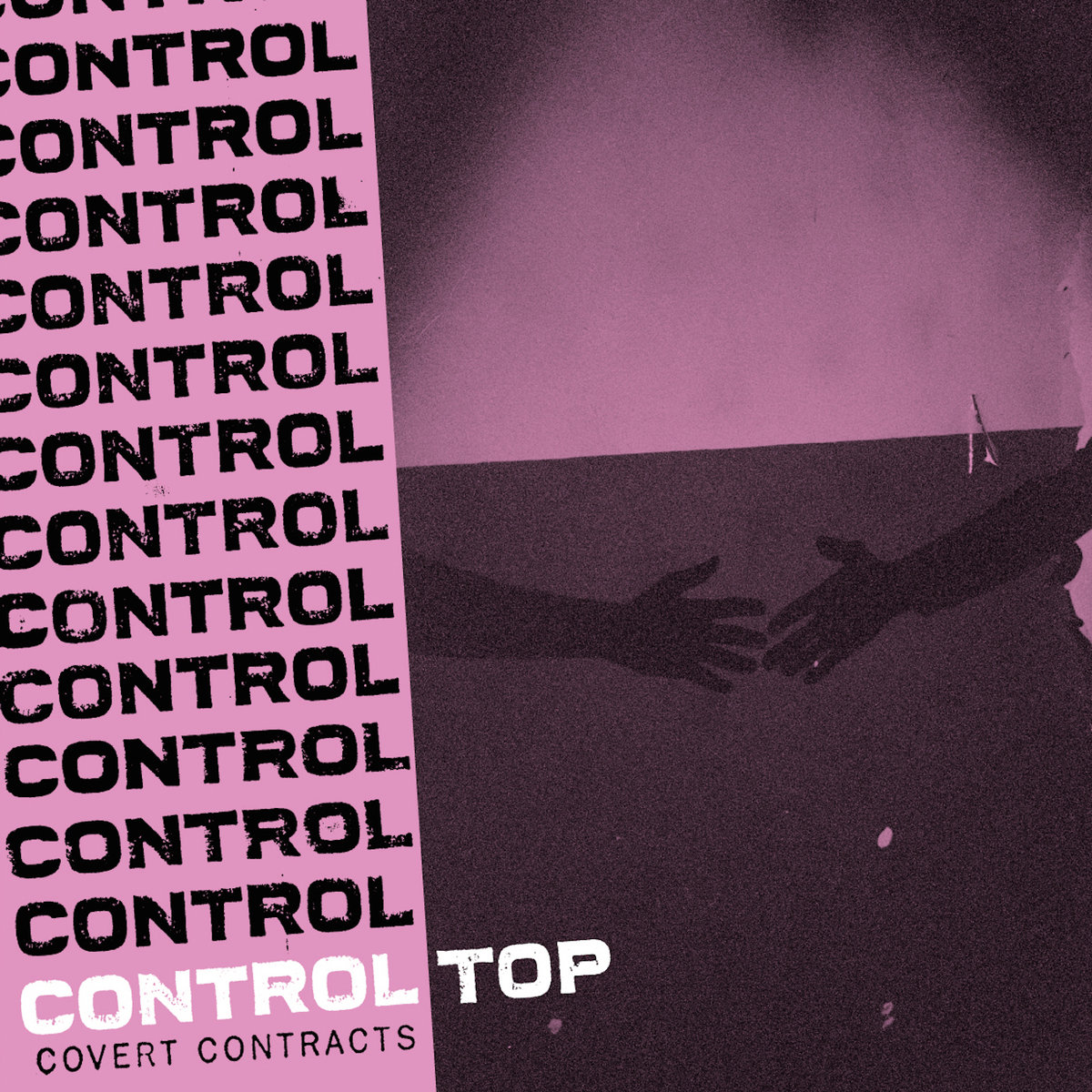
Urgent and intense, the searing post-punk from Control Top hits with the same satisfaction of finally sticking up for yourself. It’s a defiant and necessarily abrasive statement from the Philadelphia trio with songs that emphatically combat toxic behaviors. Opener “Type A” rails against aggression with singer and bassist Ali Carter growling, “Who gave you the right to decide what’s right / Your false authority is dreadful and boring me.” Chiming guitars and a throbbing bass line ramp up the intensity on “Unapologetic,” while shoegaze-minded fuzz envelops the 90s-evoking “Prism.” It’s a whiplash-inducing ride through several movements of heavy music, but the unmissable energy and empathy from the trio make it one worth taking. —Josh Terry | LISTEN
Dehd, Water
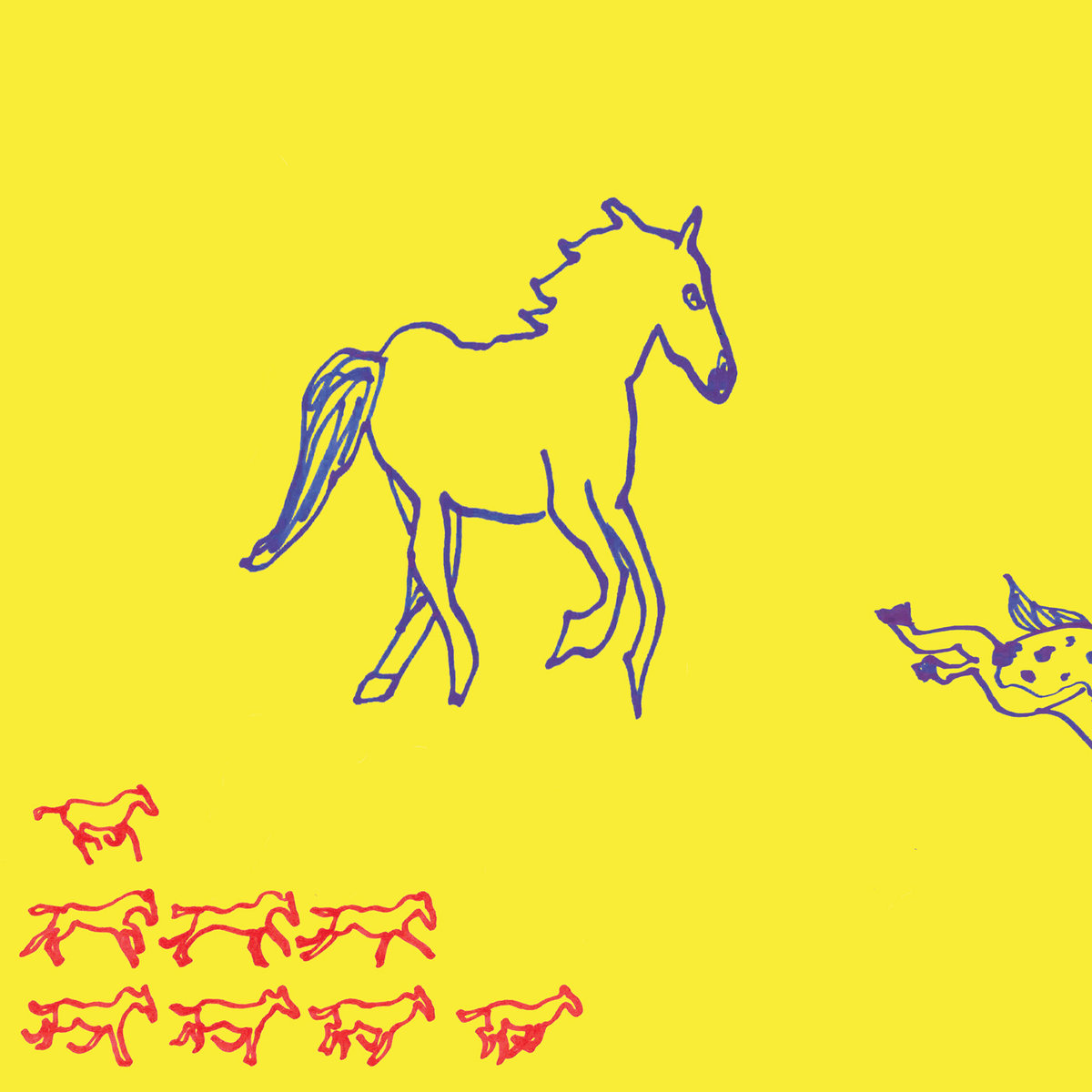
Dehd started as a creative vessel for a budding romantic relationship between songwriters Jason Balla (formerly of Ne-Hi) and Emily Kempf (formerly of Lala Lala) but when they broke up, they decided to continue to process their feelings for each other through the band. The result is a cathartic listen, even without the origin story; this isn’t just a Chicago DIY Rumours. Over Balla’s percussive, clanging guitar work, their yelping voices settle into compelling harmonies throughout. While their feelings for each other have evolved and settled, their musical bond is still obviously strong. —Josh Terry | LISTEN
Deli Girls, I Don’t Know How to Be Happy
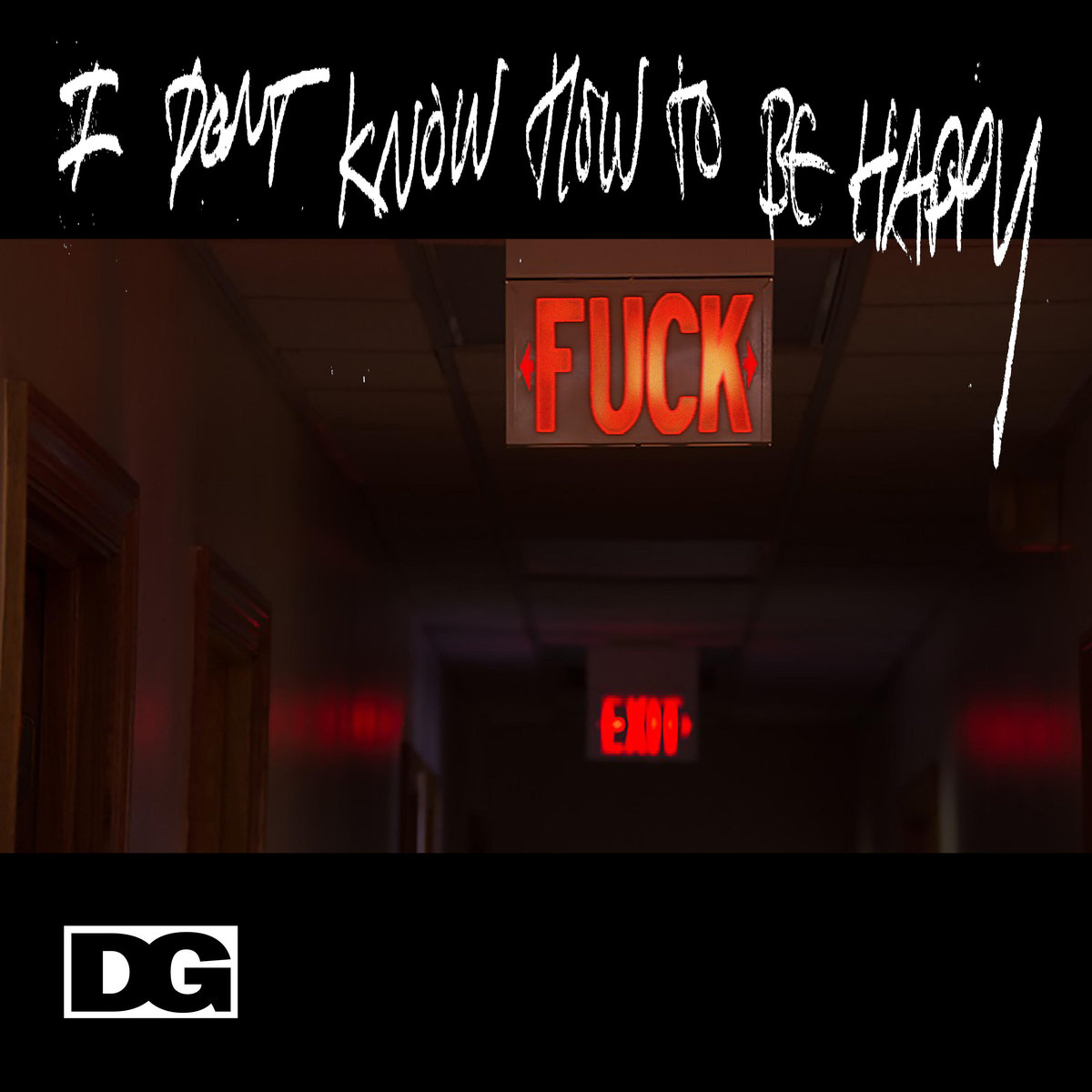
A world of trauma and violence is chewed up, metabolized, and turned into fuel on Deli Girls sophomore album I Don’t Know How to Be Happy. Over eight tracks, Danny Orlowski and Tommi Kelly rage and rave, screaming about feeling trapped by the carceral state, suicidal ideation, and governmental control over marginalized bodies, among other infuriating aspects of this hell-earth. It’s easy to curl up and cocoon yourself in the face of such strife. But Deli Girls take the other path, turning the pain into rallying cries. These songs are heard best in dark rooms, hundreds of other people screaming along every word, finding solidarity in their brokenness. But you can simulate that experience on your own. Turn it up as loud as your speakers will allow; know that you’re not alone. —Colin Joyce | LISTEN
The Dove & The Wolf, Conversations
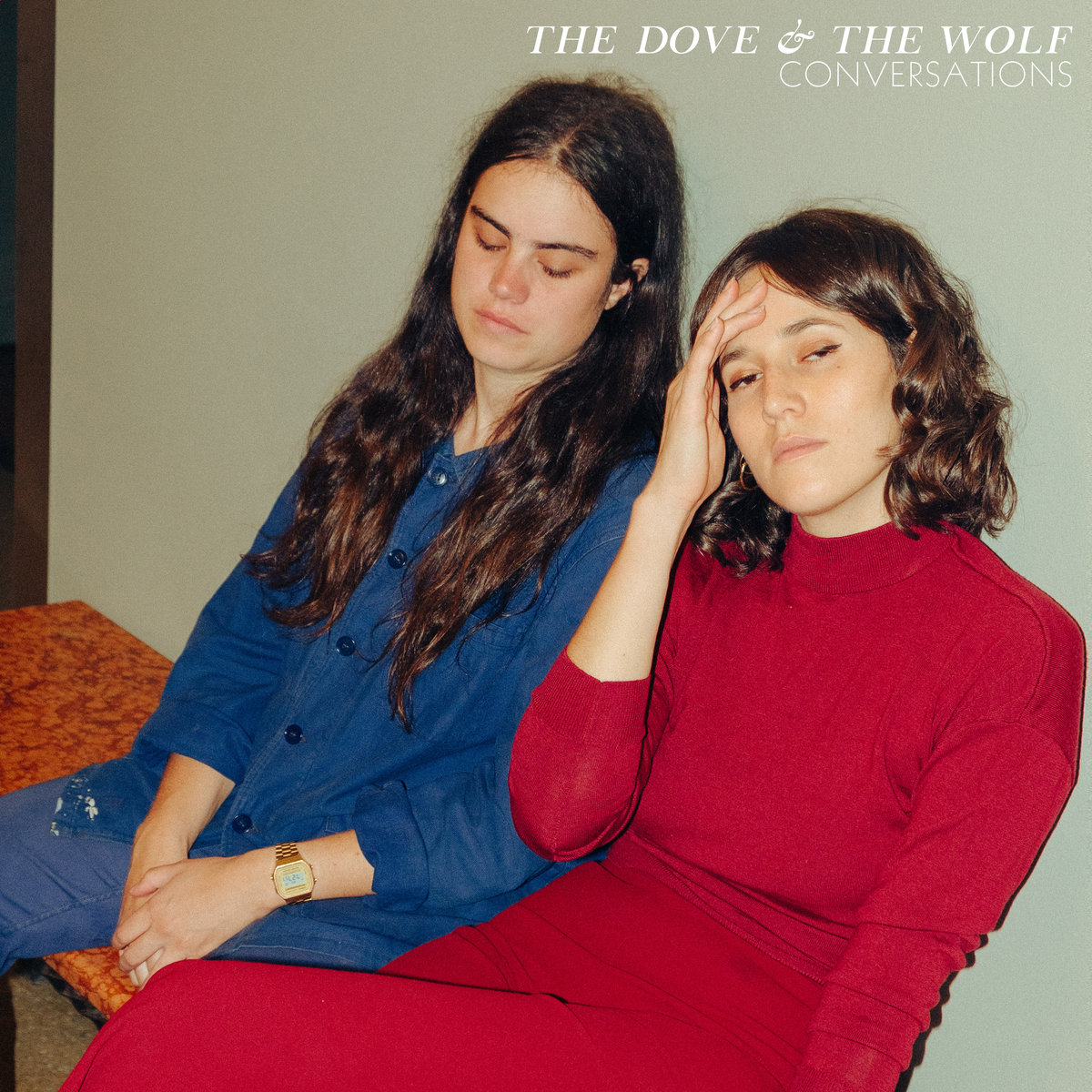
The Dove and the Wolf are best when they’re singing simple and melancholic harmonies. The Paris-born, Philadelphia- and Nashville-based duo of Paloma Gil and Louise Hayat-Camard effortlessly broadcast their chemistry through the modest Conversations. “Free Around You” is a perfect distillation why they work so well together—their twinkling guitars and amiable voices interlock in this wonderfully plaintive way. Much of the album’s headspace is occupied with mournful and quiet catharsis, but there are also songs like “Growing Apart,” which finds its power in guitar-based atmospherics that evolve into a psychedelic bass-led breakdown. Opener “Queens” is also a highlight, with its bright acoustic guitars and inescapably infectious chorus. —Josh Terry | LISTEN
Emancipator & 9 Theory, Cheeba Gold
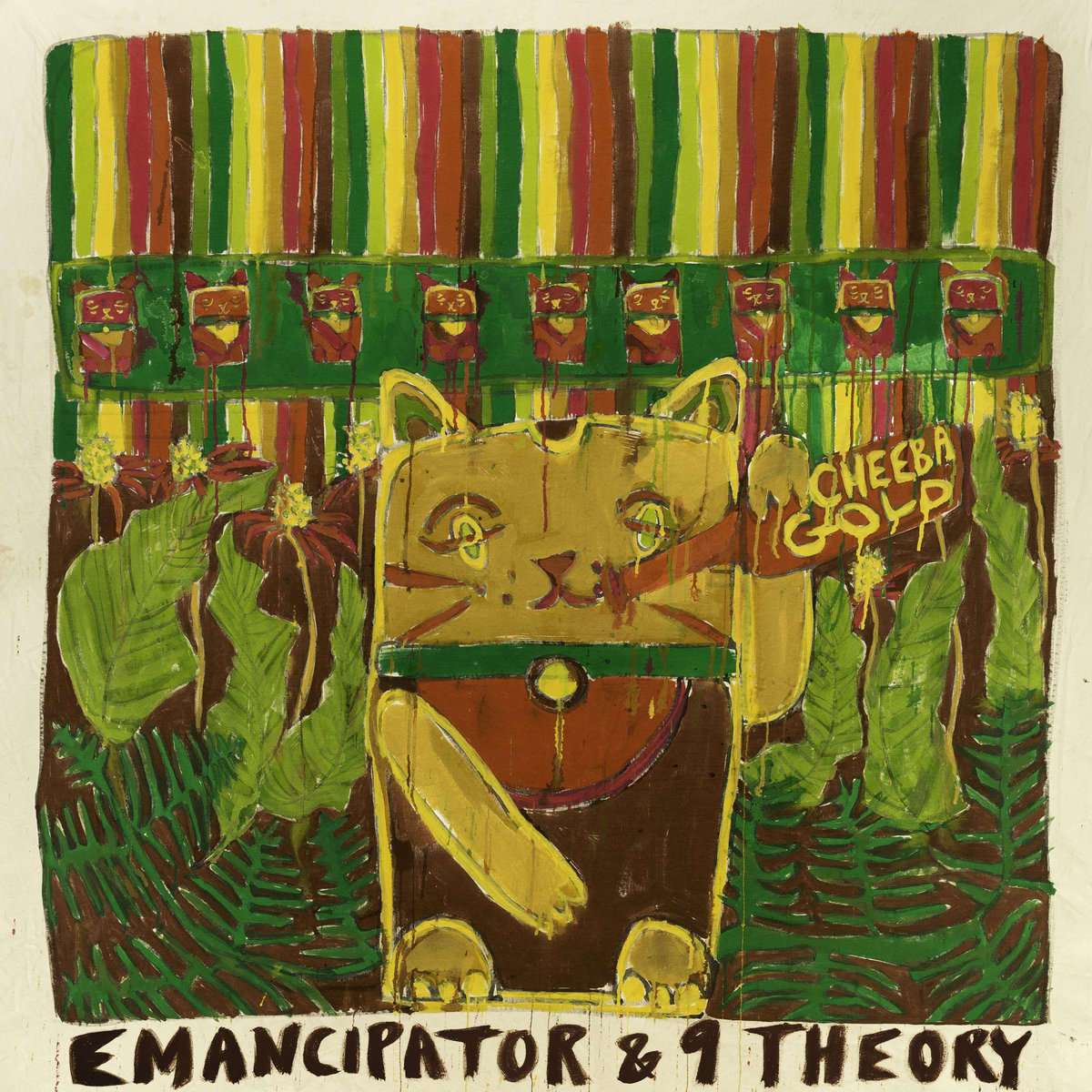
Should you ever tire of the endless YouTube playlists promising “lo-fi beats to study to,” there’s a whole trove of producers who’ve been making blunted beat tapes for decades. Emancipator has been plumbing similar depths since he self-released of Soon It Will Be Cold Enough—a 12-track debut of mellow violin, piano, and guitar parts strung over slow-moving hip-hop beats—back in 2006. His new EP with the producer 9 Theory, Cheeba Gold, follows in that tradition. Across four tracks, the EP slowly builds organic, acoustic melodies into something progressively more electronic sounding, always with a sense of nostalgia and melancholy that’s perfect for getting into a creative flow. It’s a lovely little slice of atmospheric, oozing bliss. —Nicole Clark | LISTEN
Farruko, Gangalee

Whether or not you realize it, this Puerto Rican rapper is one of the most popular artists in America right now. An early proponent of the Latin trap sound, Farruko currently features on two different Hot 100 charting singles, including the balmy reggae jam “Calma” with pop singer Pedro Capó and, on the remix, Alicia Keys. Even those who understand reggaetón’s intertwined history with Jamaican music might be surprised to hear that his latest album Gangalee represents the artist’s full-on embrace of dancehall, a genre he’s networked with frequently in the past on tracks with the likes of Ky-Mani Marley and Sean Paul. For this nearly movie-length Spanish-language bashment hybrid, he enlists multiple players in the música urbana scene including Anuel AA and Bad Bunny in an effort that unifies the regional sounds of the Caribbean into one seriously potent summertime strain. —Gary Suarez | LISTEN
Fly Anakin and Tuamie, Emergency Raps Vol. 4
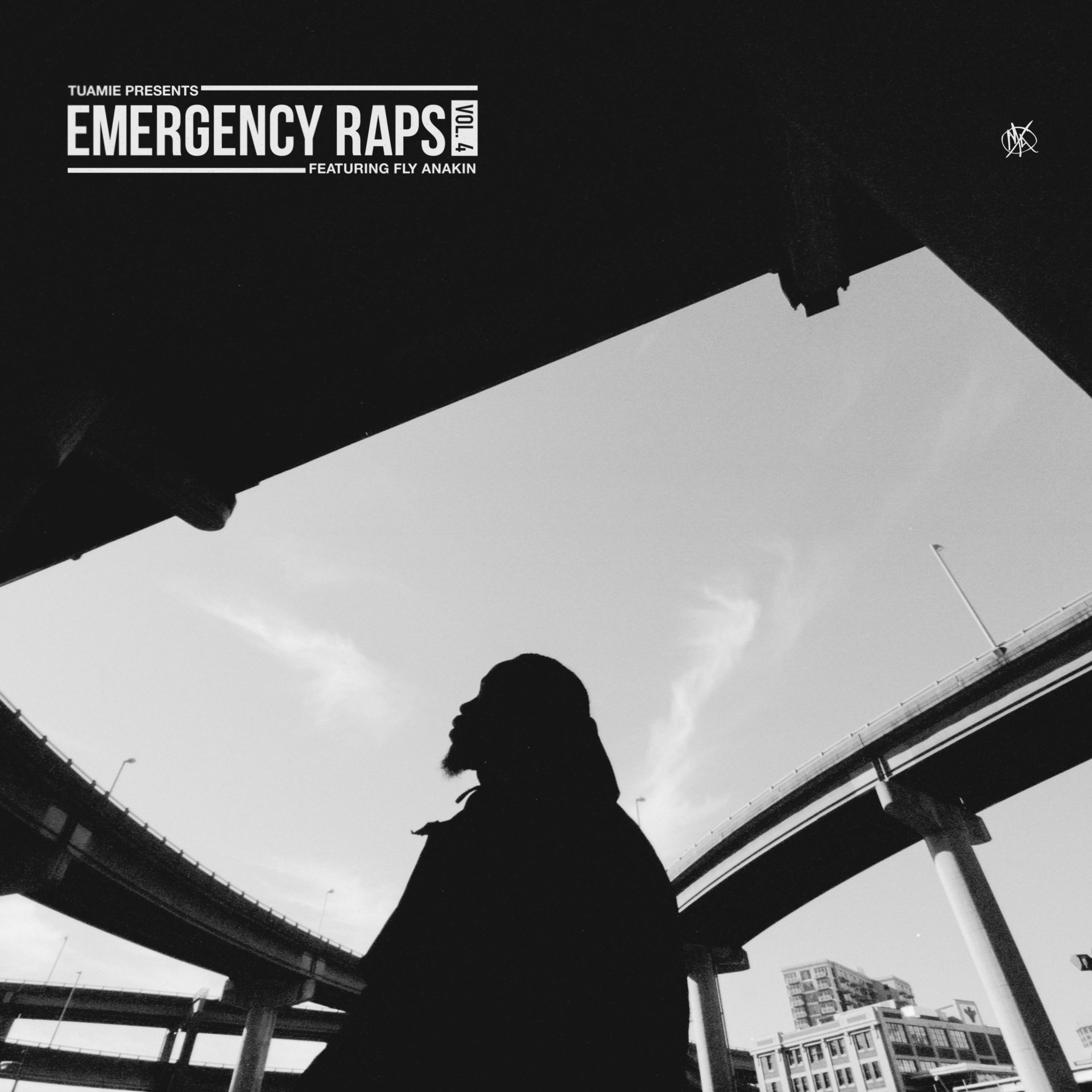
Richmond, Virginia-based rap collective Mutant Academy puts out music at an astounding clip. Their tapes feature old school beats and new school flows populated by a number of eccentric characters including Fly Anakin, Tuamie, and Big Kahuna OG. Unfortunately the group is most famous for beefing with Chris Crack, who allegedly stole a beat for his Crackheads Live Longer Than Vegans album. But Mutant Academy should be making headlines for the plethora of great material they have like Emergency Raps, Vol. 4., which is all soul samples and shit talking, told in their charming multitude of voices. It’s a talent show with a half-dozen first prize contestants. —Will Schube | LISTEN
Golden Daze, Simpatico
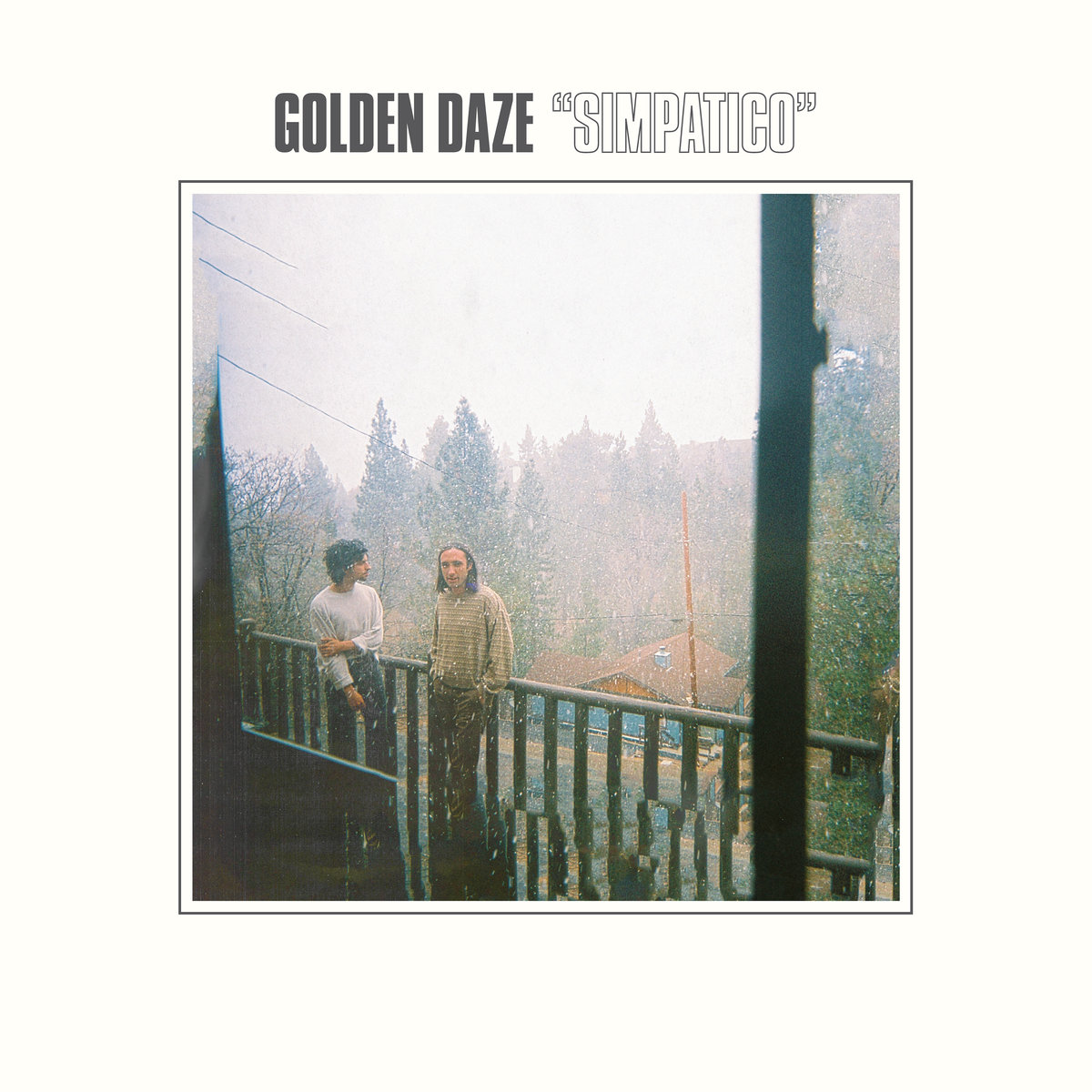
Friendships have their ups and downs. Though not as unmooring as a romantic breakup, there’s still heartache and trauma that comes from the fallout of a platonic relationship. On Simpatico, the latest LP from LA indie rock outfit Golden Daze, songwriters Jacob Loeb and Ben Schwab dissect their own bond across 11 songs. Single “Took A Fall” finds Loeb and Schwab accepting the responsibility for their friendship, harmonizing, “I still hold you dearly / I’m far away / Never thanked you for it all.” Elsewhere the hypnotic and soft-hued arrangements take hold like the patiently rollicking “Flowers” and the languid and silky “Lynard Bassman.” Even as Loeb and Schwab deal in their own pain, there’s an honesty and a hopefulness in these songs. There’s a sense of relief as they deal with their issues through writing. —Josh Terry | LISTEN
Hand Habits, placeholder
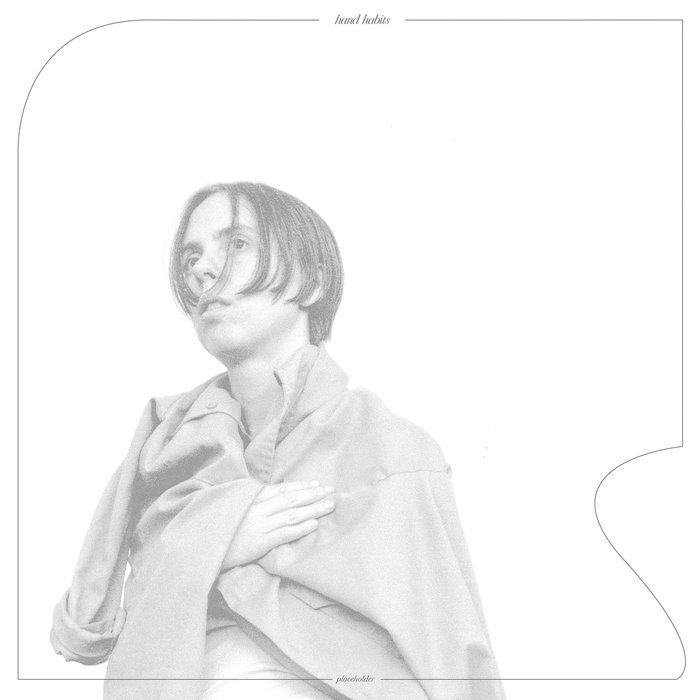
For the last three years, Meg Duffy was an integral part of Kevin Morby’s touring band, a dexterous and virtuosic guitarist whose melodic sensibility and propensity to shred was just stunning. Now that they have split to pursue their Hand Habits project, Duffy’s obvious talent shines in different and more subdued ways on their sophomore album placeholder. Everything from the mixing, to the drum sounds, and the delicately swooning arrangements feels intentional and considered. From the subtle twang of “Jessica” and the way Duffy sings the opening line, “When I get to thinking / I start to worry that you don’t know me anymore,” there’s a radiating emotional resonance. With moments like these bursting throughout the tracklist, placeholder creates a sensitive, self-contained world. —Josh Terry | LISTEN
Julia Jacklin, Crushing

Generosity is one of the most crucial ingredients for a break-up album. On Crushing, Australia’s Julia Jacklin deals in obvious and devastating pain while mourning a relationship, but the melancholic moments of remembering kindness and comfort are just as important to these songs. Some of the tracks document the break-up, but others deal with the fallout. The hushed “Good Guy” finds Jacklin singing of a lonely hook-up, “Tell me I’m the love of your life / Just for a night.” There’s a clarity and a sadness burrowed deep in the songs, like on “When The Family Flies In” on which she devastatingly observes, “You know it’s bad when the family flies in / Just to stand by your side.” Closer “Comfort” wraps up the album-length autopsy with something that that feels like acceptance: “Don’t know how he’s doing / But that’s what you get / You can’t be the one to hold him when you were the one / Who left.” —Josh Terry | LISTEN
Kinlaw & Franco Franco, Mezzi Umani Mezze Machine
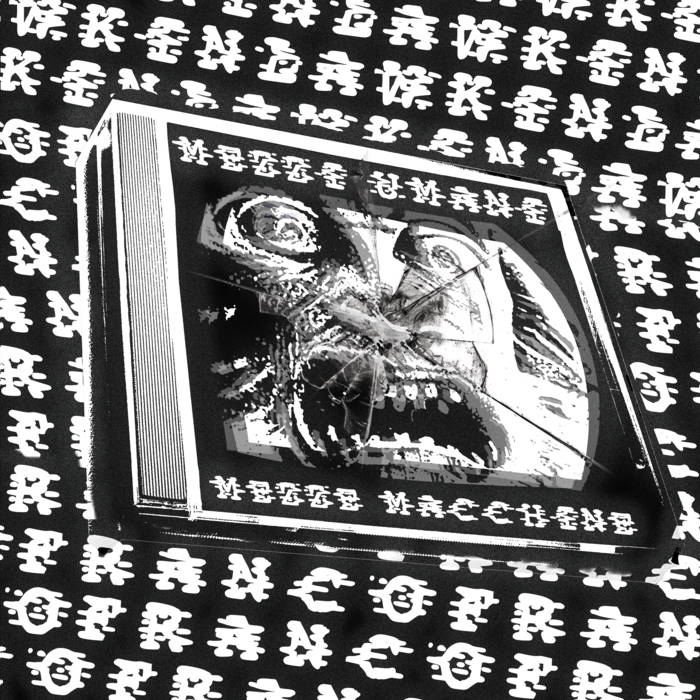
The title of this static-scoured cybernetic rap freakout claims that the duo is “half man, half machine,” which is pretty believable as soon as you hear the sickening squalls that open the record. The rest of it continues in kind, with Bristol-based duo of futurist producer Kinlaw and scream-rapper Franco offering industrial elegies for the end times. Beats like “Reality Check” conjure images of collapsing tech and grimy streets of post-capitalist collapse, while Franco stands at the center, eyes-bugged and supremely stressed out. One colourful email from Avon Terror Corps, the label/collective that released this record, suggested that they discovered Franco in Bristol “battle rapping in Italian outside a Lick’n Chicken.” But Mezzi Umani Mezze Machine suggests that maybe they misunderstood. Maybe he was out there on the street corner offering offering end-times prophecies, visions of a time after the machines won. —Colin Joyce | LISTEN
Knifeplay, Pearlty
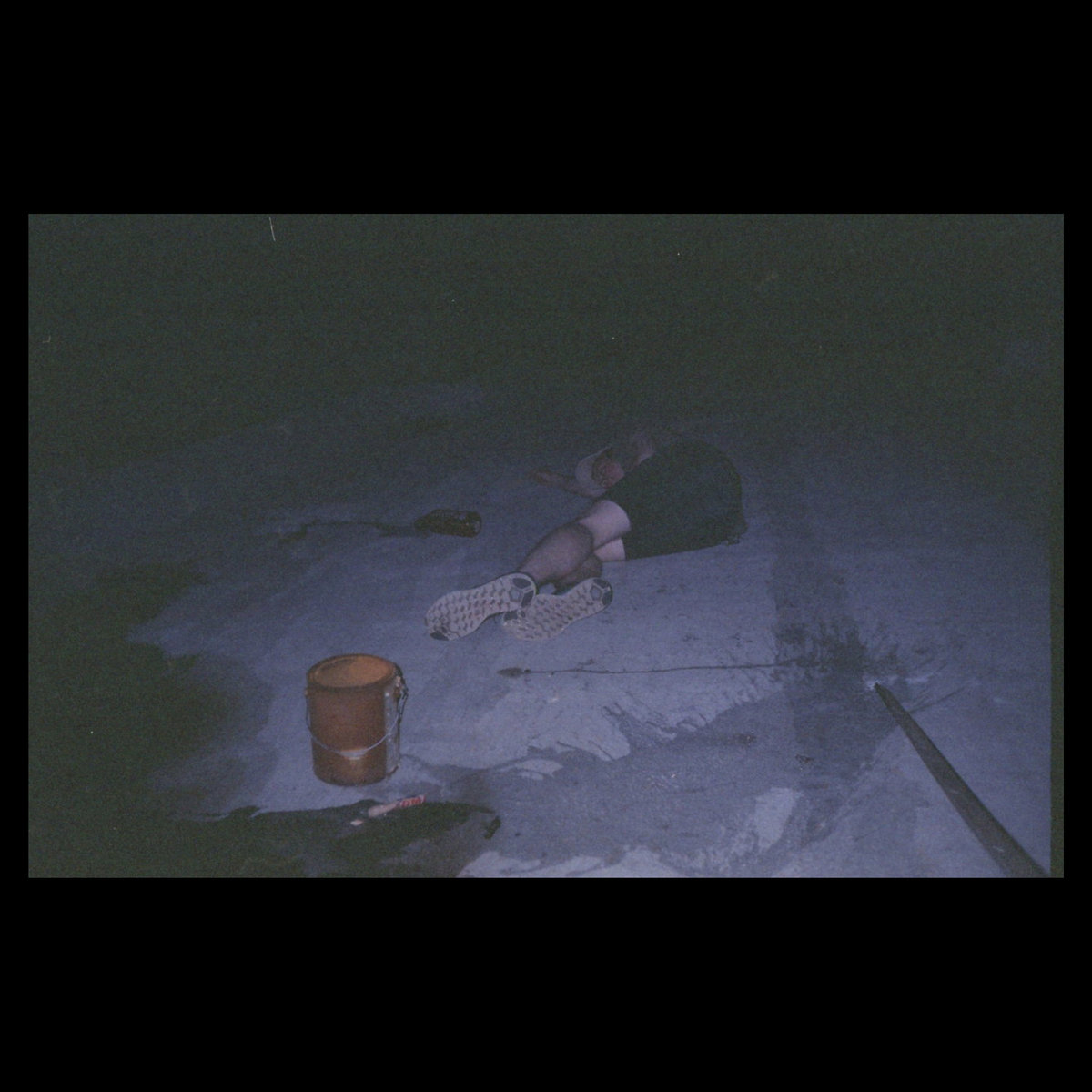
There’s never been a dearth of basement-playing, Philly-based bands singing about death, drugs, and the search for deliverance, but there’s something special about Knifeplay. Singer and songwriter TJ Strohmer’s creeping, fractured songs start from familiar places. The wheezy opener “Tears” begins like a tensile track by Duster or Bedhead, but these songs are powder kegs, pushed to their breaking points at just the right moment. Where other shoegaze and slowcore revivalists adopt the same sort of meek drollness that their forebears perfected, Strohmer treats his subjects like the matters of life and death that they really are. When he sings about violence and self-harm on tracks like “Lover,” he’s not afraid to make them sound foreboding and scary, to push the tracks themselves to uncomfortable places. These are gnarled, uncomfortable feelings—maybe the music should be too. —Colin Joyce | LISTEN
Lansky Jones, Dangerfield
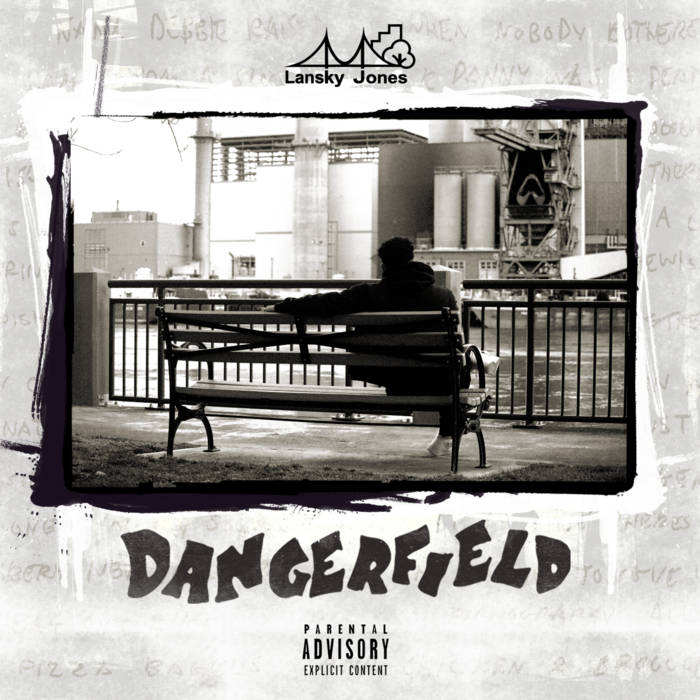
Queens’ role in hip-hop’s legacy cannot be overstated, though nowadays you’d be hard pressed to find local rappers getting the kind of national attention that their predecessors once received. Comprised of borough natives and longtime neighbourhood residents, the aptly named World’s Fair collective did their part to combat that unjust state of affairs, and now one of its more engaging spitters has stepped out into the solo arena. On Dangerfield, the lyrically dextrous and innately witty Lansky Jones represents for his often underrepresented side of the city. A scholar of New York rap history, he employs seemingly disparate yet inherently connected touchpoints, from the Illmatic-esque grime of “Know The Type” to the glossy G-Unit era feels of “Rich Bitch Lullaby.” —Gary Suarez | LISTEN
Little May, Blame My Body
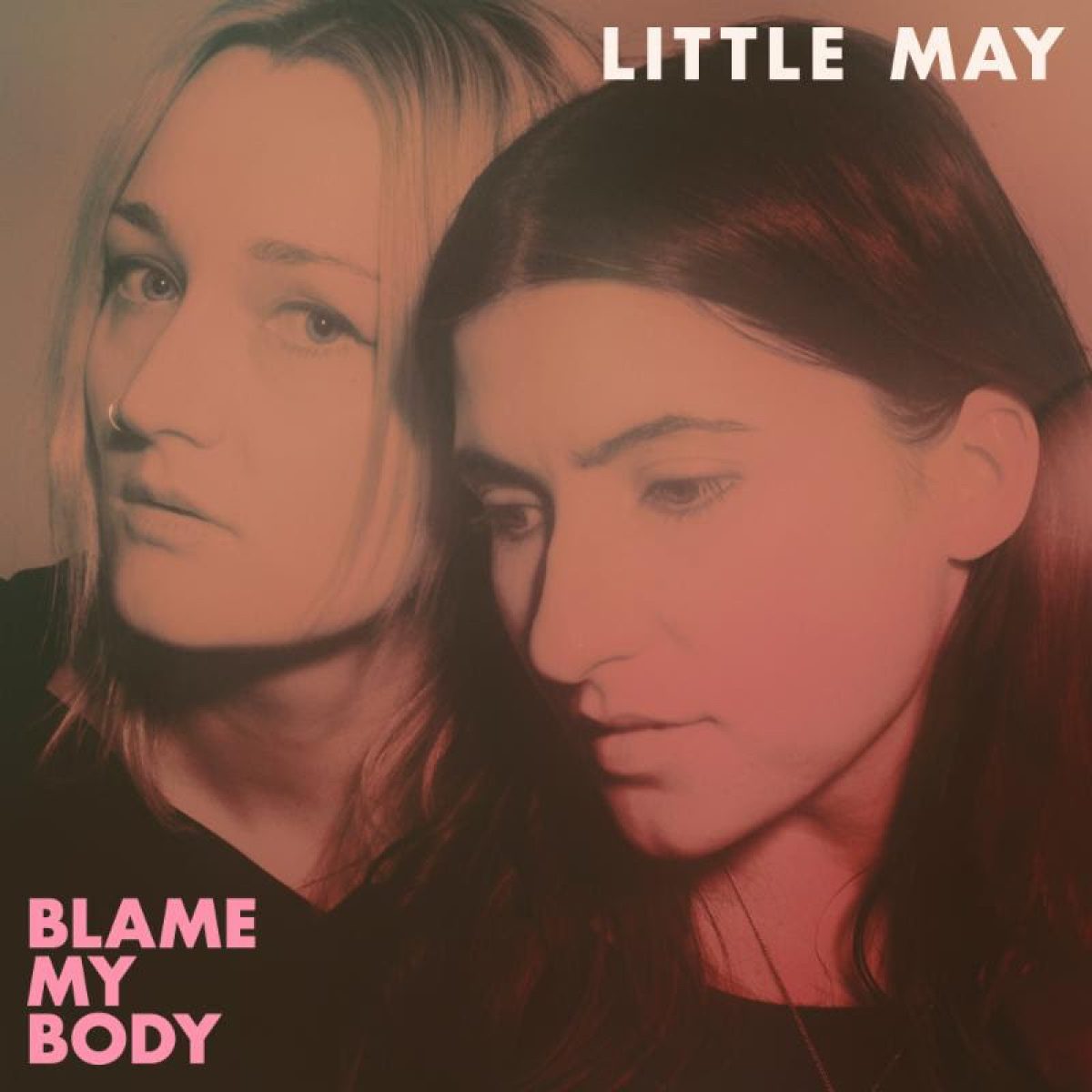
High school friends Liz Drummond and Hannah Field, the pair who make up Sydney-based folk-pop duo Little May, stepped it up big time on their second album, Blame My Body. Three-and-a-half years following their debut, For The Company, they lost their third member and made an album that’s fuller, poppier, sexier, and significantly more pissed off.
There’s definitely a 90s thing going on here; with their moody guitars and impassioned vocals, Little May’s songs about heartbreak and imposter syndrome and finding strength in vulnerability recall the likes of Suzanne Vega and Natalie Merchant. There are tracks that make statements, like “Apples,” which is about making money in the music industry, and the title track, Field’s note on sexism addressed to both her niece and her younger self. But the best are romantic ones like “Night Blindness,” a super folky, despondent-sounding love song one line from which—”Do you really wish / Do you wish for something more than me?”—is an uppercut to the gut. —Leah Mandel | LISTEN
L.O.T.I.O.N., World Wide W.E.B.

“You aren’t going to unplug / It would be easy / You won’t shut me down,” Alexander Heir growls on a particularly banging track from L.O.T.I.O.N.’s new record, World Wide W.E.B., called “Unplugged.” It’s the sixth release from the prolific New York-based artist’s digital hardcore project, and possibly the most experimental and refined. World Wide W.E.B., which continues L.O.T.I.O.N.’s techno-dystopian aesthetic and focus on the absurdities of war, fascism, and digital control, is a seriously raging comment on violence and subservience to capitalist technology. The meld of industrial, rave, and punk is weirdly fun this time around—a very pleasantly surprising progression from the band’s history of lo-fi cyberpunk. The best bits come from the bopping fury of the zeitgeisty “Gabber Punks On Dabs / Downed Police Helicopter” and the stomping, crunchy sound of the smartphone-themed “Head Programmer,” which ends with some kind of techno demon snarling, “I need to get online. I need a computer.” —Leah Mandel | LISTEN
Lucki, Freewave 3
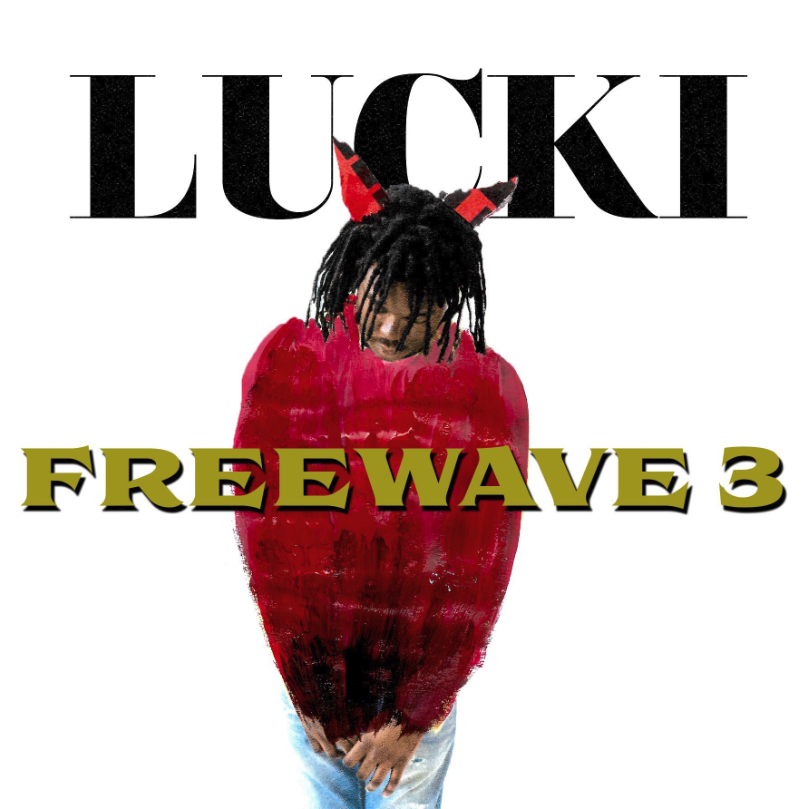
Chicago rapper Lucki has managed to carve out a fascinating and unpredictably thrilling career after the seemingly unsustainable buzz he received around some tapes he put out as a teen a half decade ago. Over the last few years, he’s dealt with drug addiction, newfound fatherhood, and a break from music, but with Freewave 3, a 15-song mixtape that clocks in under a half-hour, he’s made his best work yet. The production here is never showy, which allows Lucki to effortlessly run all over the beats. (He shines particularly on the ones from Valee collaborator CHASETHEMONEY.) He’s unhurried but relentless, rapping, “I drink when I’m on Lake Shore, I know somebody worried ’bout me / I did everything I could do, I still set it up just to leave” on “Interlude.” Later, on the Earl Sweatshirt-produced “All In,” he reveals, “Heart all in that shit, I just keep gettin’ high, my stomach hate all of this shit.” No Chicago rapper finds so much inspiration in anxiety and pain. —Josh Terry | LISTEN
Malci, Papaya!
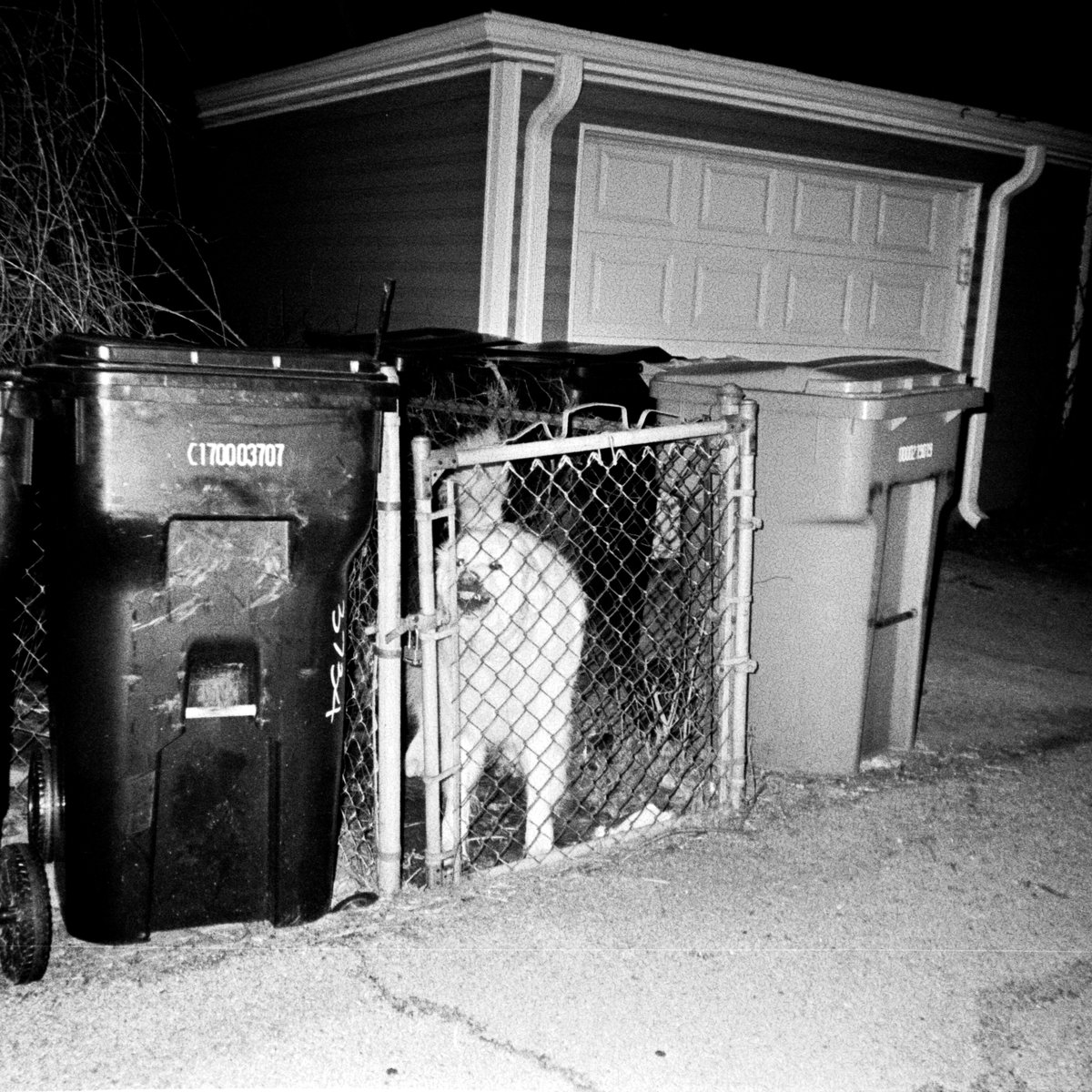
There’s a playfulness to the way Chicago’s Malci raps and produces music. It’s an unorthodox approach that makes his latest mixtape Papaya! such a thrilling listen. As someone who has thrived operating solo, his singular vision makes him a distinct figure in his city’s hip-hop community. He’s unafraid to be himself and indulge his nerdier impulses like on the video game-referencing “Legacy of Kain” or his mixtapes-spanning love affair with beer (“My 40oz Endorsement”). The highlight here how Malci’s flow practically skips over his challenging instrumentals. Just take the watery one-two punch of “When They Get Me” and “On God,” the latter of which dissolves into gurgling bloops and ambient noise. As a beatmaker, his decision-making is unconventional, but even his most off-kilter experiments feel surprisingly cohesive. —Josh Terry | LISTEN
Melii, phAses
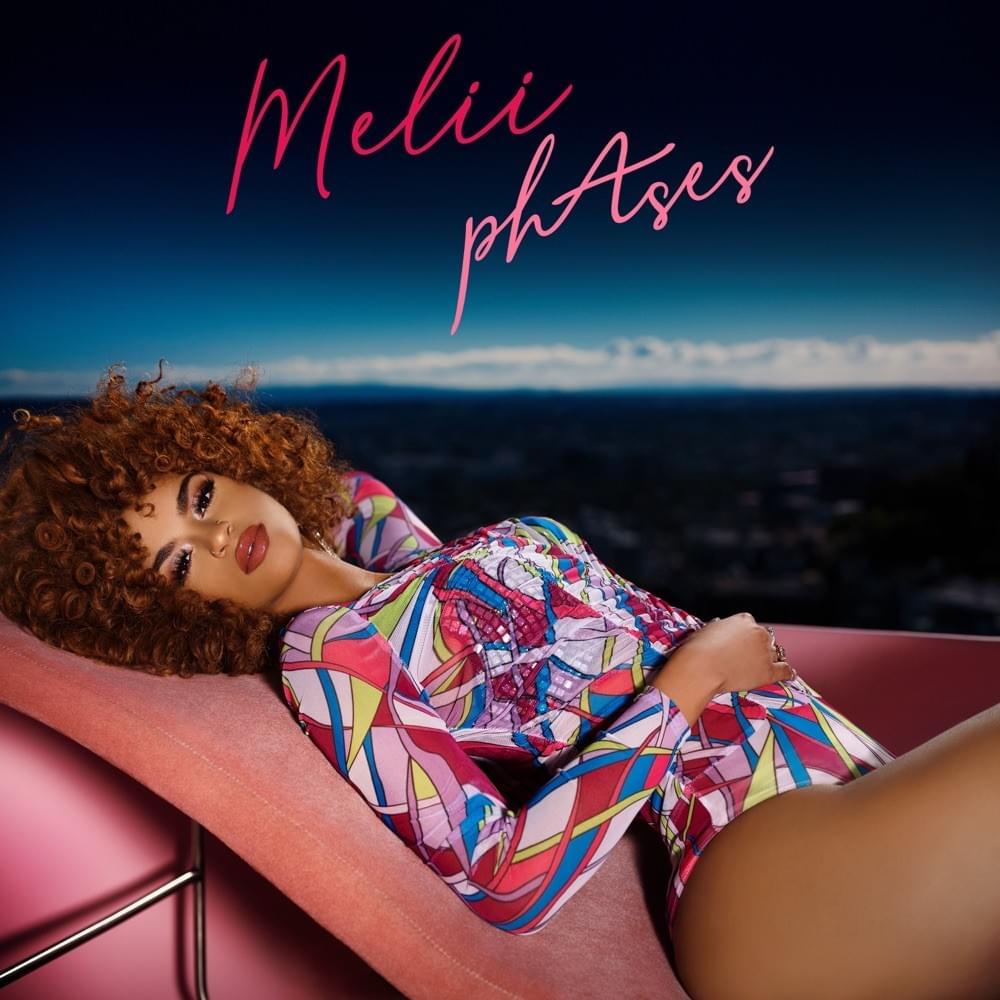
On her debut full-length phAses, 21-year-old Melii blends the R&B and hip-hop influences from her native East Harlem neighbourhood with her Afro-Latina upbringing to concoct a sound that neatly fits alongside her sing-song delivery. Although she bills herself as a rapper, she weaves R&B throughout the 14-track project, with songs like “Before I,” which samples Blackstreet’s 1994 hit “Before I Let You Go” and “Mister,” a sleepy bedroom song that asks a man to let his guard down. The Harlem musician does have moments where she reminds you that she is in fact a rapper, like the three-song streak from “Gangsta Talk” to “Copy” that find her interchanging complex flows like a pro. —Kristin Corry | LISTEN
Mereba, The Jungle Is The Only Way Out
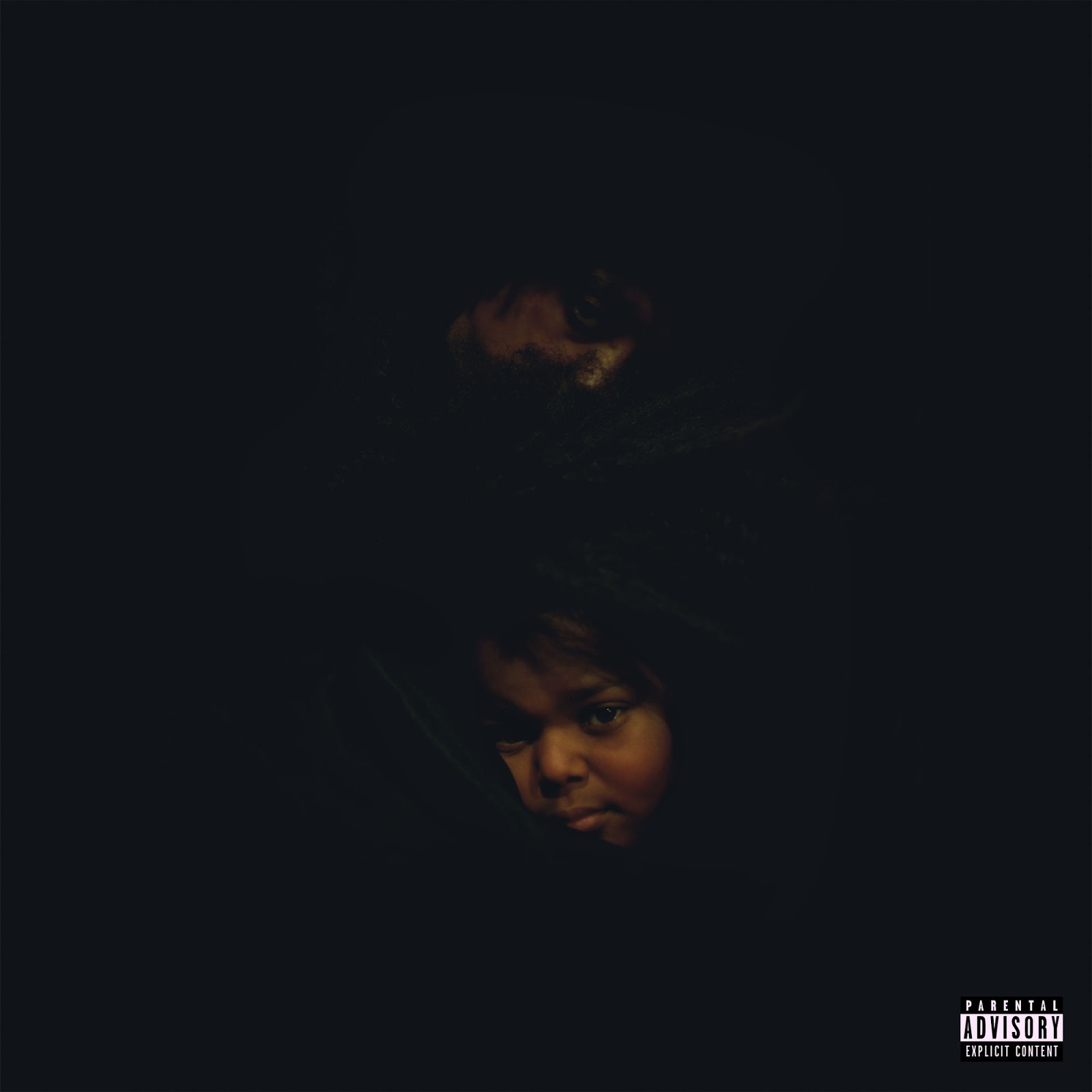
Mereba’s self-produced The Jungle Is The Only Way Out is a folksy musing that captures the singer’s voyage of personal development. She lays out a laundry list of intentions on album opener “more,” which reads like objectives she’s trying to accomplish throughout the duration of the album. “Need to write more / Freedom to fight more / Seek insight more / Ignite more,” she says in a tone resembling spoken-word. The Jungle Is The Only Way Out rotates between Mereba’s cool poetry (“on the rocks”), and spirited raps (“Planet U”), but she is at her best flaunting her buttery vocals.
“Iʼm sick and tired of the compromising / Iʼd rather sleep with no one beside me,” she sings on “Stay Tru,” a song recounting the ways the singer has ignored red flags in relationships. The following song, “Sandstorm,” feels like a continuation of that narrative. The song, featuring J.I.D., find the two in a destructive romance that blinds them like a desert windstorm. “Just fight the feeling, it’s all we do / Inside, it’s killing me, baby / Outside I’m cucumber cool,” they sing in unison. With The Jungle Is The Only Way Out, Mereba settling in a niche all her own. —Kristin Corry | LISTEN
Minimal Violence, InDreams
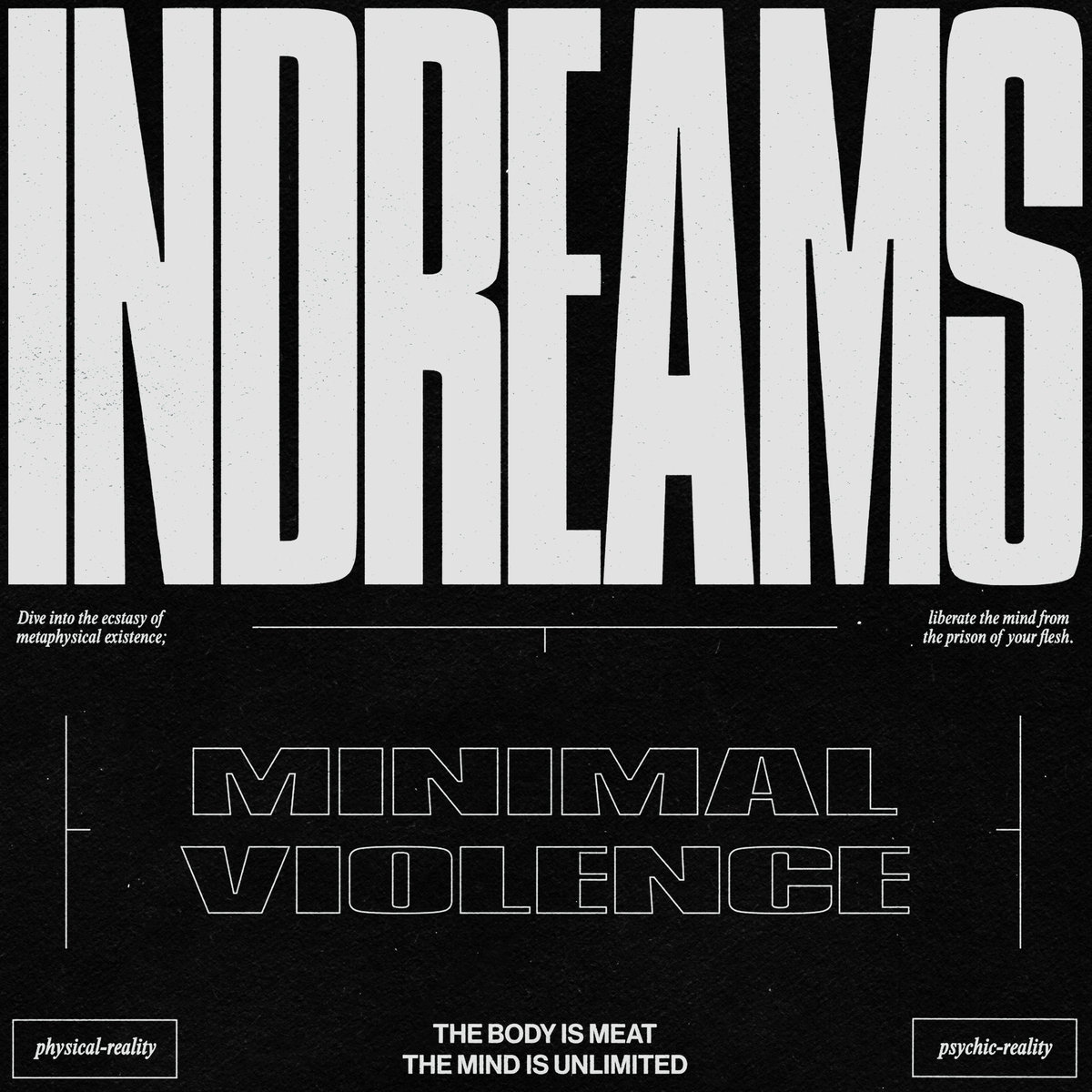
Minimal Violence’s music is all about pulse: fast, faster, and fastest. It’s club music for the bedroom and the basement dive, and everywhere in between. On their new album InDreams, the duo plays with melodies in a way that never hinders the journey forward, only amplifying it with harsh rhythmic cuts cut that reveals something deeper and more mysterious. It’s not didactic music, but when it comes on you’ll know what to do: dance and dream. —Will Schube | LISTEN
Myles Cameron, Lonely Suburban Blackboy

Summer is soul-searching season and Myles Cameron’s EP Lonely Suburban Blackboy is the perfect soundtrack for the long, pensive walks you’ll be taking through the humid months. In six airy R&B tracks, the singer-rapper from Rye, New York takes listeners along on a spiritual journey, as he searches for self-acceptance navigating “blackness in white spaces,” as he put it earlier this year. He may depict himself as lonely, with verses about not fitting in solidly with white or Black communities and girls not quite knowing what to do with this artsy, emotional Black boy. But the music makes it clear he’s not sad, not really. The EP is ultimately a celebration of finding joy in solitude when it feels like no one else is appreciating you properly. —Taylor Hosking | LISTEN
Ona, Full Moon, Heavy Light
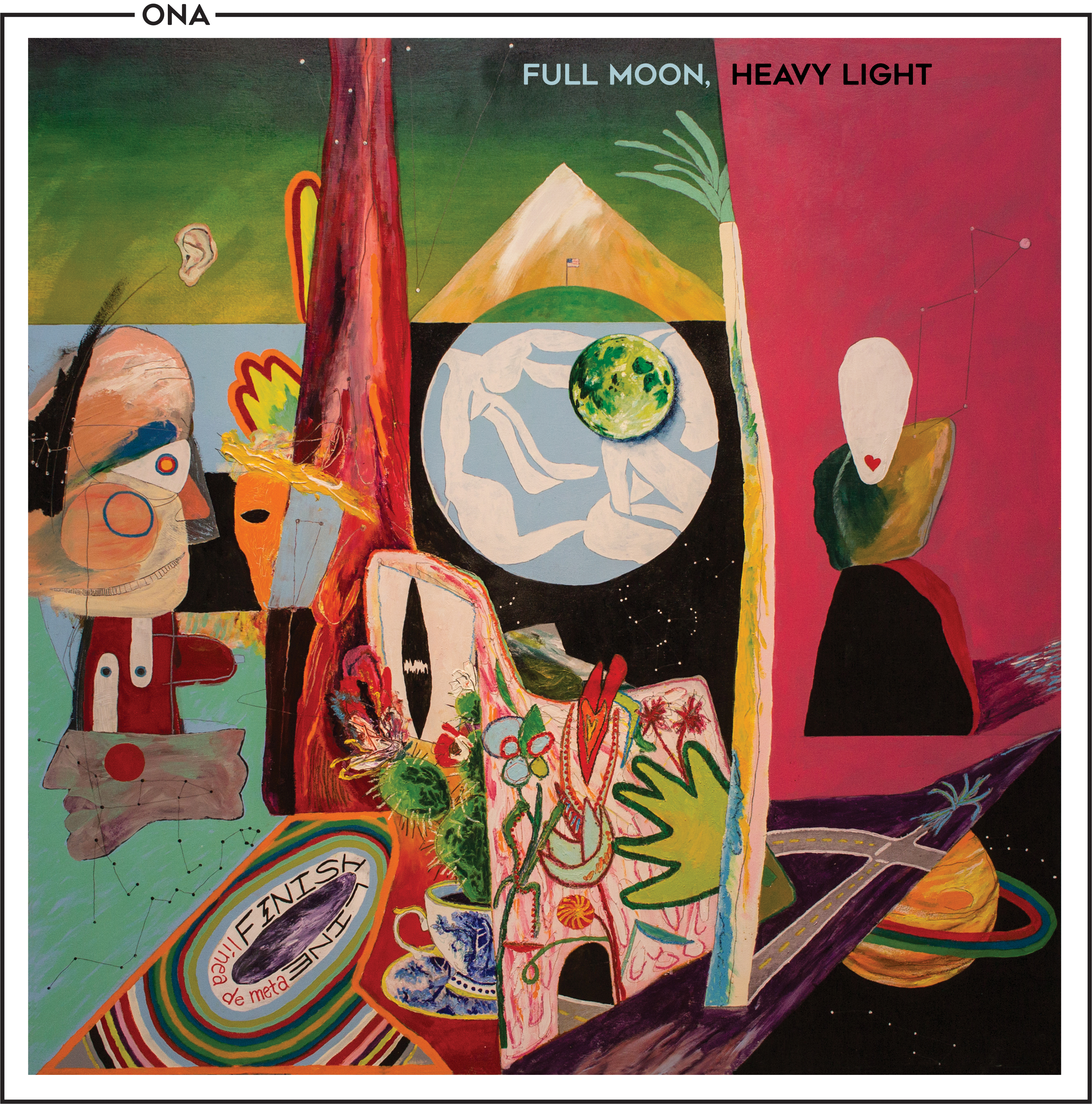
Popular music from Appalachia doesn’t get a lot of shine nationally and when it does, it’s often Americana, country, or bluegrass. While there are notable exceptions like the great Charleston-based riff-rockers Rozwell Kid, it’s still surprising to hear bands like Ona which transcends the stereotypical genres of the region with brilliant confidence and refreshing songwriting. On their sophomore LP Full Moon, Heavy Light, frontman Bradley Jenkins offers welcoming yet ragged croon over the top of some hooky guitar interplay with bandmate and co-songwriter Zack Owens. Songs like “Summer Candy” and “True Emotion” are bombastic, fun, and endlessly listenable. But when the band gets brooding and introspective, the album opens up even further. “Quito” and the nostalgic “Young Forever” stand as some of the strongest quiet rock songs of the year. —Josh Terry | LISTEN
Pivot Gang, You Can’t Sit With Us
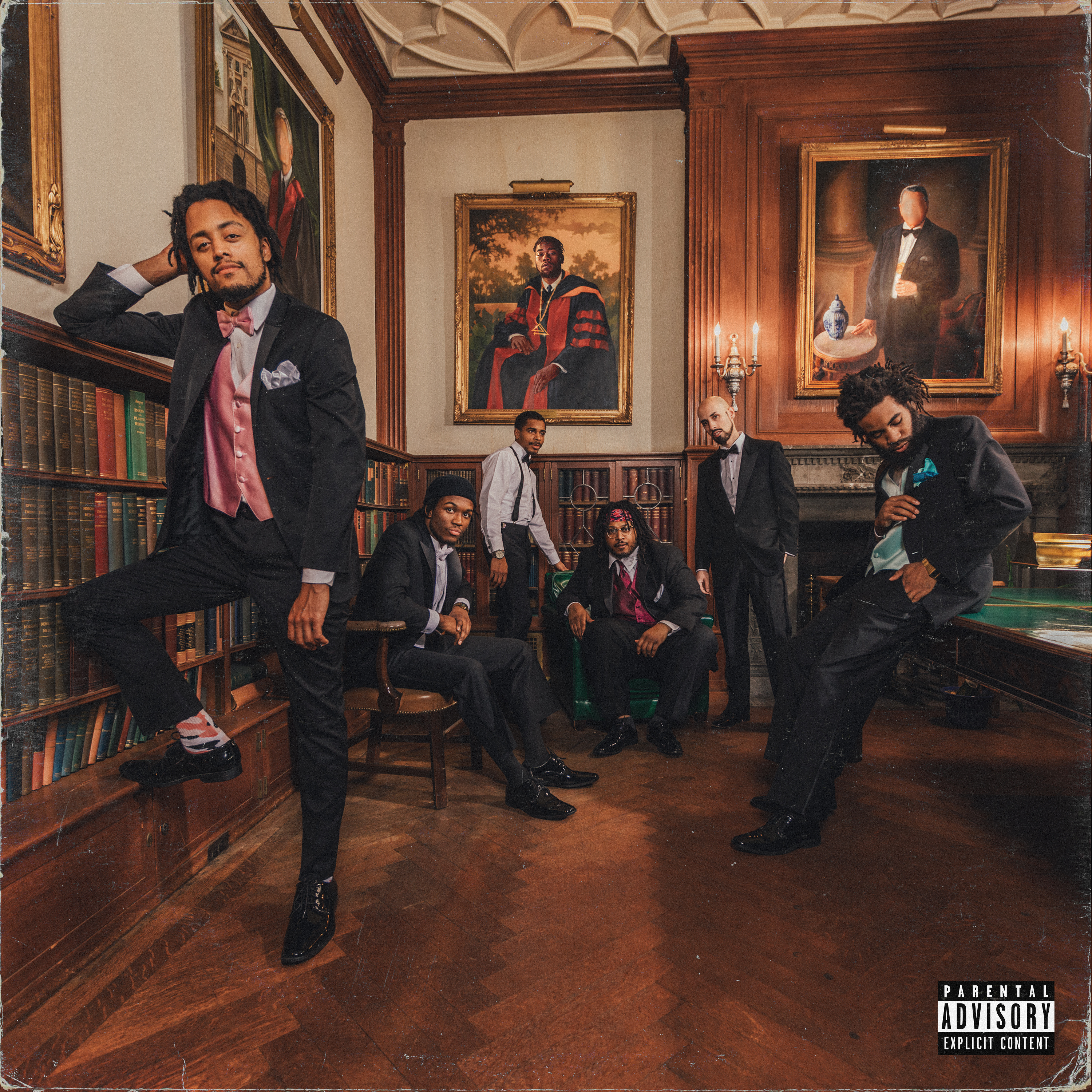
When rap collectives team up for a collaborative full-length, the results sometimes feel unfocused and disorienting because there are just too many competing perspectives. This is not the case on You Can’t Sit With Us, the debut LP from Chicago’s Pivot Gang, a group that contains local standouts Saba and his brother Joseph Chilliams, alongside a host of others. The first voice on the LP is member MFnMelo, whose gravelly flow is the perfect foil to the Chilliams’ sardonic delivery and Saba’s emotive and versatile voice. Elsewhere they get thoughtful and moody on the single “Colbert,” which boasts a stellar verse from member Fresh Waters. Frequent collaborator Smino guests on “Bad Boys,” prompting a proper rave up. No matter the emotion, their mood is contagious. —Josh Terry | LISTEN
Sarah Mary Chadwick, The Queen Who Stole the Sky
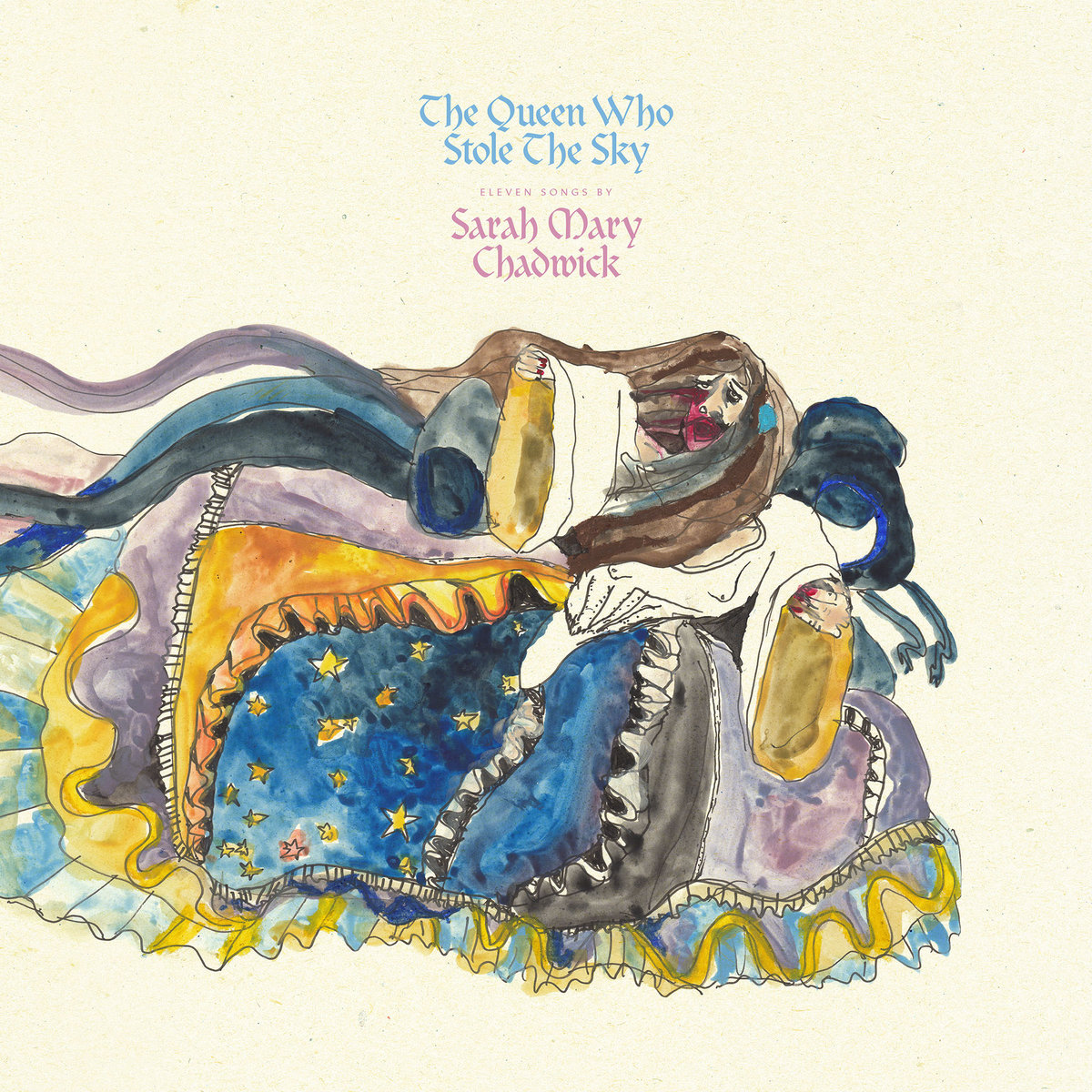
Sarah Mary Chadwick had the opportunity to record a nearly 150-year-old organ for her new album The Queen Who Stole the Sky—an occasion she didn’t let go to waste. All of the Melbourne-based songwriter’s music has touched upon life’s big questions, and this album is similarly focused on such mortal concerns. What happens when we die? What do we leave behind? Is there any god up above us watching our flailing attempts to figure it out? She sings with empathy and gratitude for the way things have played out. The closing of the record’s title track is a summation of how crushing, funny, and enlivening this album can be. After grappling with regret, doubt, and substance abuse, she reflects on the journey. “If there is a god I’d like to thank them for my time,” she sings. “I have had fun no matter how it seems.” It sounds like someone delivering their own eulogy, fitting then that it’s backed by an old church organ. —Colin Joyce | LISTEN
Taphari, Earth’s No Fun
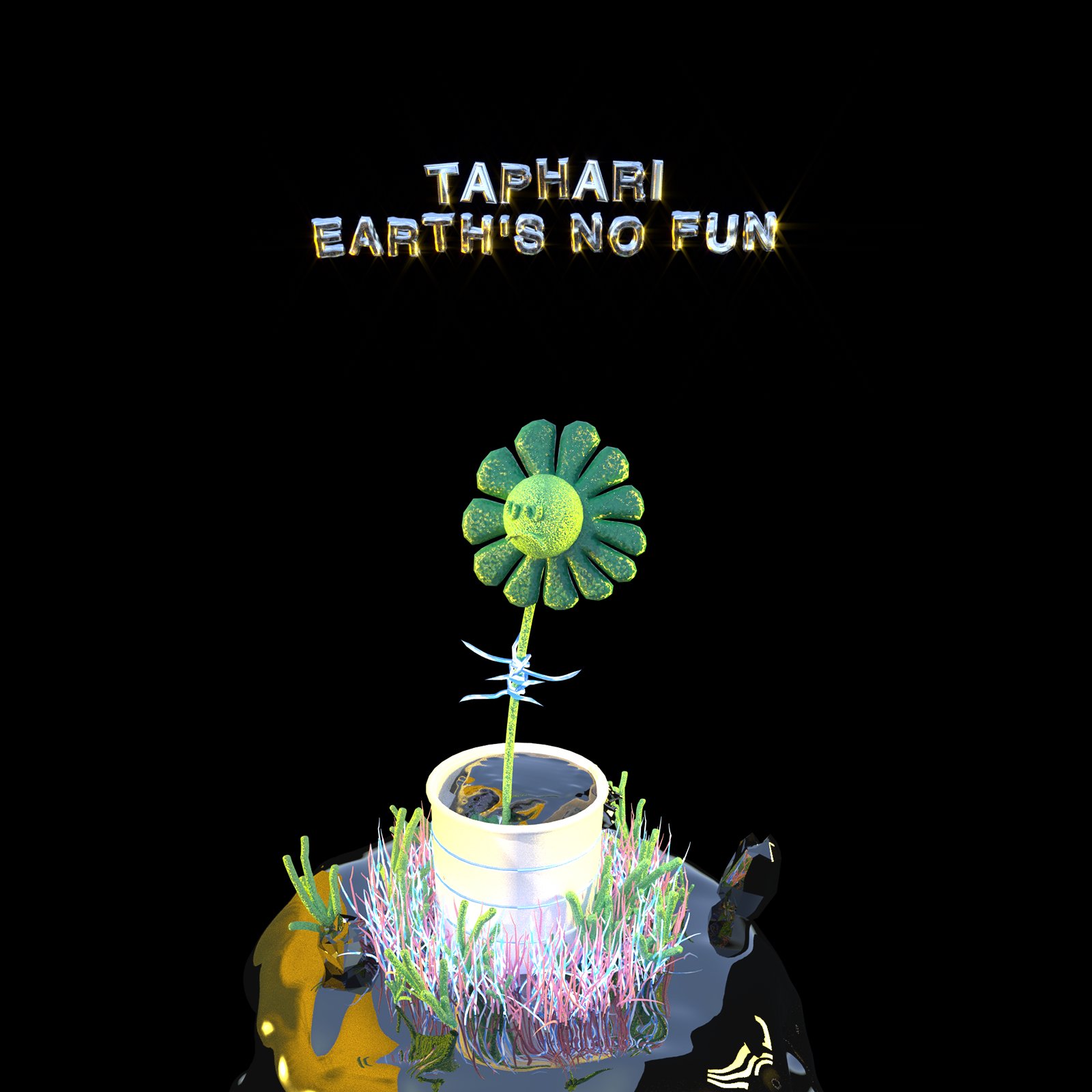
Brooklyn rapper Taphari’s debut EP is an ode to the power you can find in alienation. As a queer club kid growing up in Brownsville, he had to embrace his outsiderdom, which he applies here in glorious kiss-offs like “Stingy,” in which he sends away both haters and copycats with a sing-songy taunt (“When they try to come and talk to me / Imma tell ’em to go and brush their teeth”). “Tell Me How” further expounds on these themes—a sample excerpt “I ain’t friendly with you hoes”—the irony being that a body of work centered on not fitting in often draws in likeminded people. If there’s any justice, he’ll soon have an army of aliens at his back. The freaks always party harder anyway. —Colin Joyce | LISTEN
Tavishi, মশ্তিষ্কের কণ্ঠশ্বর | Voices in my head
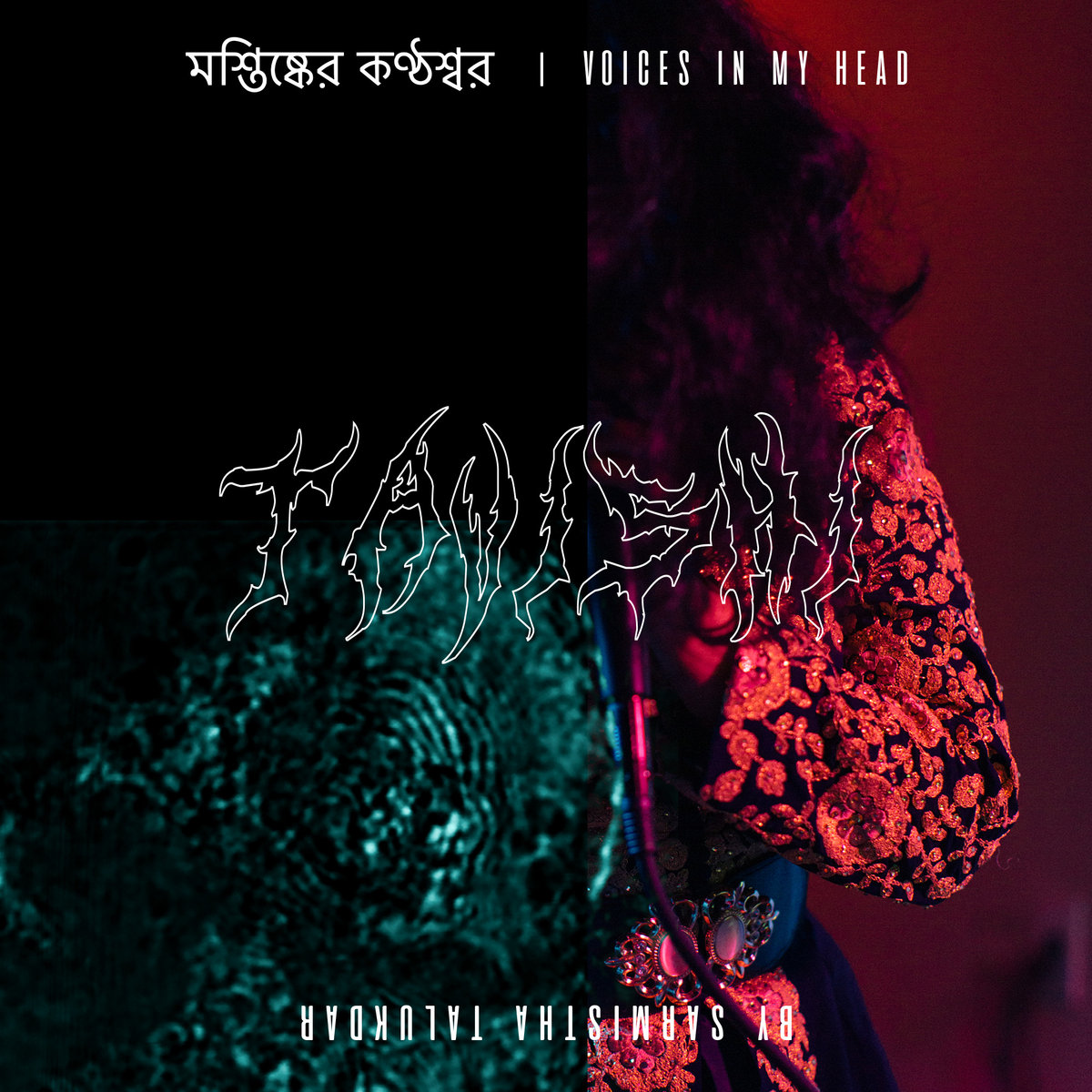
At turns both solitary and intimate, austere and warm, this cassette by the Virginia-based artist and scientist Tavishi is the product of a set of contradictory circumstances. Per the label Chinabot’s Bandcamp, it drew on her experiences as “a foreigner in a country which is hostile to immigrants, a queer woman from a patriarchal Bengali tradition, and an artist-scientist who finds the cold abstractions of academia removed from social reality.” Which is to say, in most contexts that life has placed her in, she could feel some degree of isolation. But the music itself doesn’t feel lonely, it finds power and healing in its idiosyncrasies. The incidental crackles and scuffed-up field recordings that fill pieces like “Desert Mirage” don’t feel like noisy abstractions, but personal touches that lend fullness and intensity to the wandering melodies. —Colin Joyce | LISTEN
Ulla Straus, Big Room

Dance music fans have taken to use the descriptor “big room” to refer to a kind of techno at its least restrained and tasteful, full of gigantic speaker-shattering kick drums and garishly gleaming synth sequences. Here the producer Ulla Straus appropriates the term to describe music that’s more or less the opposite of that. The eight tracks that make up this cassette for the appropriately named label Quiet Time Tapes are slow, subtle, and enveloping. These tracks wouldn’t immediately fill a big room like a big bass drum would, they would seep into it slowly, like an oil diffuser, or a nice incense. There’s a track called “Billow,” which succinctly describes the movement of Straus’ music: it twirls beautifully, then becomes one with the world around it. —Colin Joyce | LISTEN
ymtk, What You Wish For
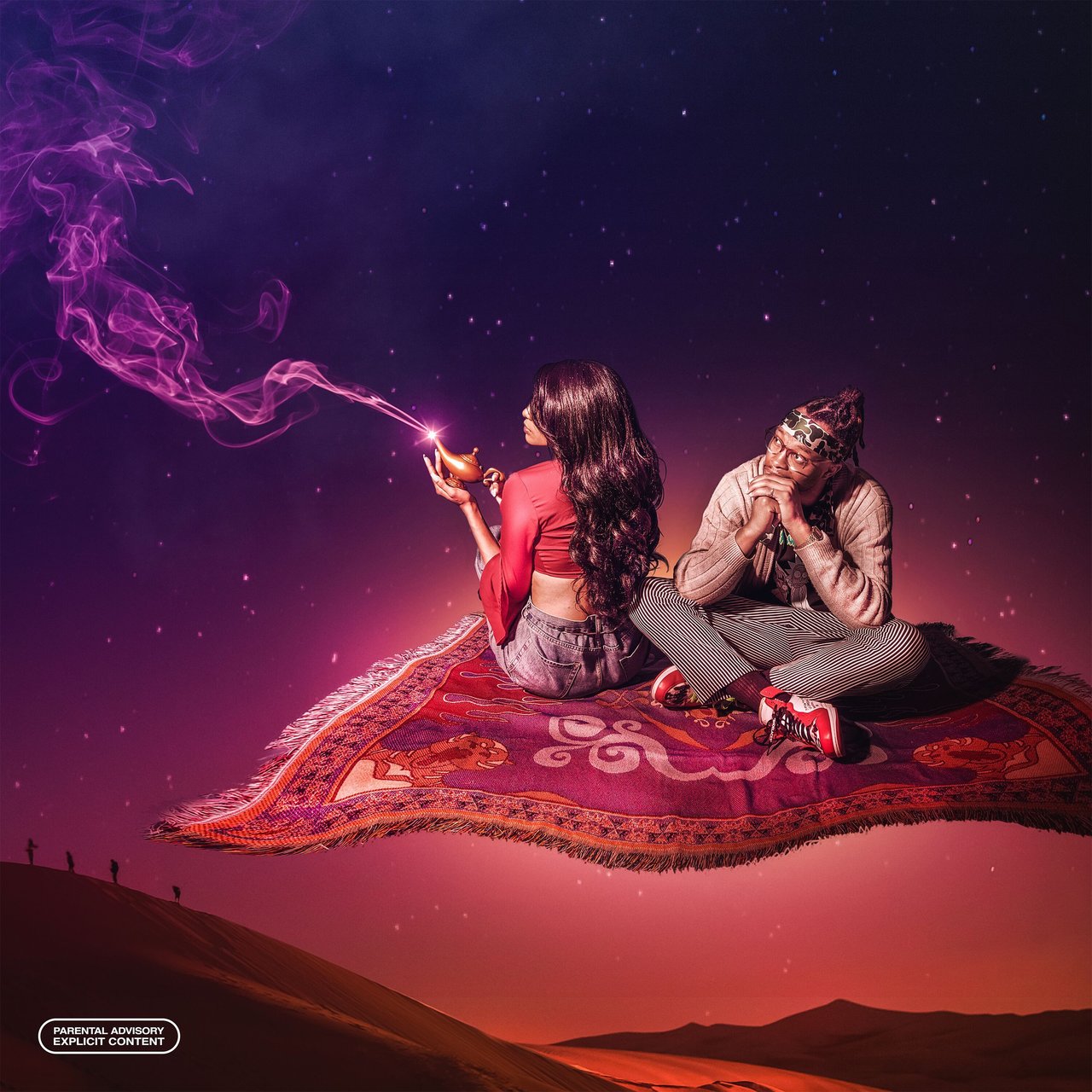
East Oakland singer ymtk’s EP What You Wish For feels like a daydream. Squeezing nine tracks into under 30 minutes, the EP offers a series of vignettes that show off what’s going on inside his head. He shows a braggadocios side on “Wish Come True,” and outlines the merits of the woman he’s courting on “Handful.” Elsewhere he’s smitten, or he’s in the midst of a break-up, or buried in regret, as he is on the final track, “Take & Give.” “You win some, you lose some, and then some,” he sings. “I misplaced your prayers once, I hope it’s not lost forever.” It’s moving, no matter what mood he decides to show off. —Kristin Corry | LISTEN
Zamilska, Uncovered

Producer Natalia Zamilska doesn’t refer to her music as techno. It’s “something hard and dark. Raw noise,” she told The Quietus in 2015, about her debut album, Untune. On her third album, Uncovered, she adds chants and mumbles to her cunningly minimalistic layers of trance beats, bass, and tribal sounds. There’s whispery, thumping head-bangers like “HOLLOW,” and menacing tracks like “ALIVE,” on which she repeats, “She’s a girl / Who can eat you alive.” The whole thing sounds ominous, as though you’re preparing to march through a field of knives, or descending into a dark and dripping cave. —Leah Mandel | LISTEN
This article originally appeared on VICE US.